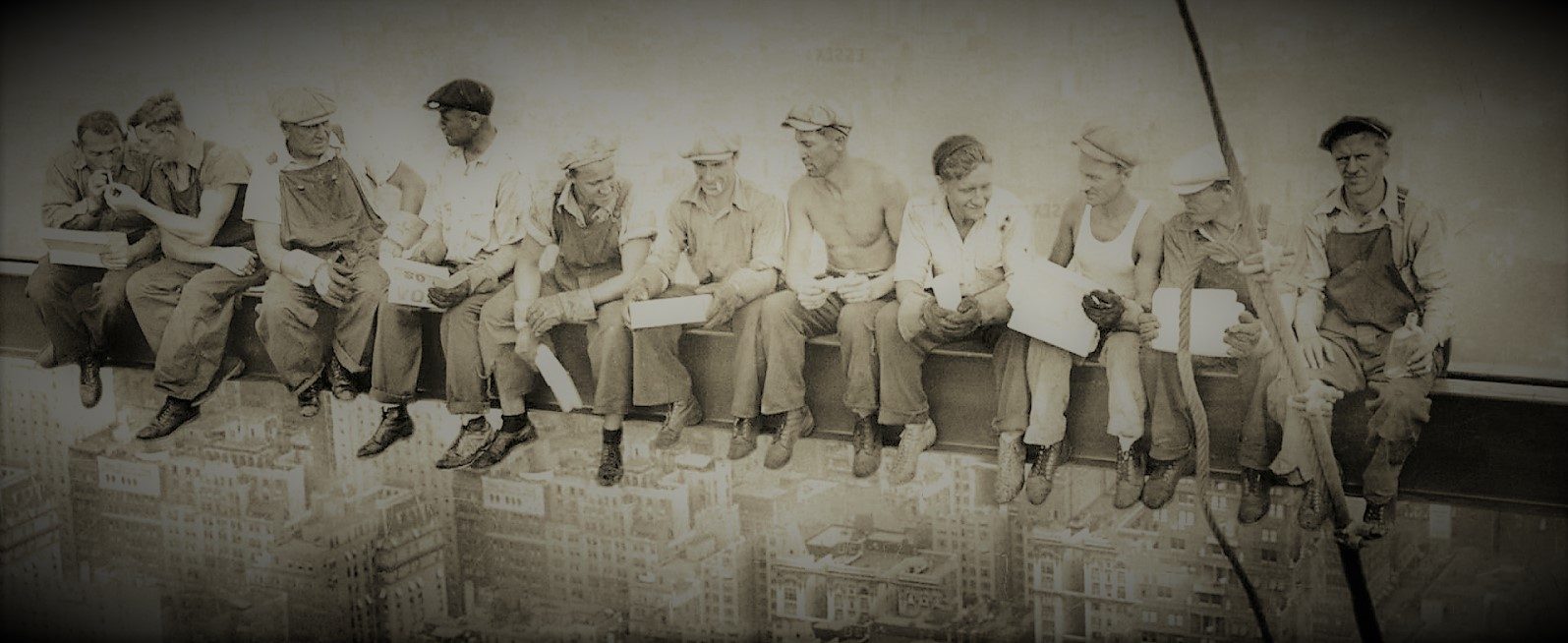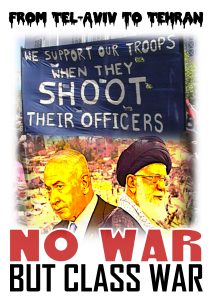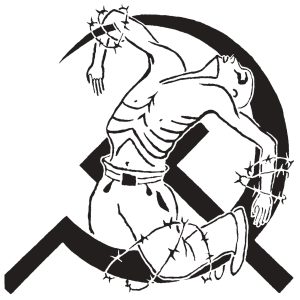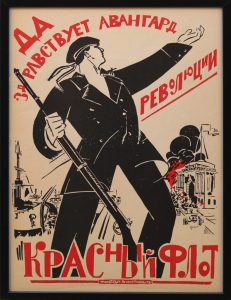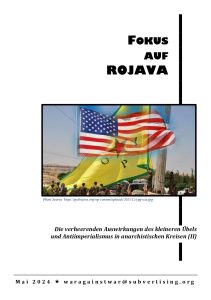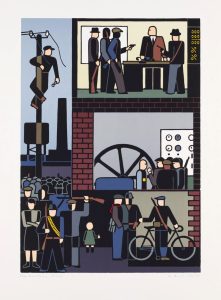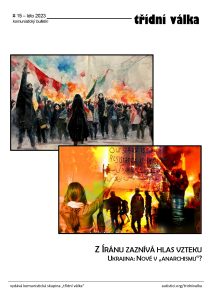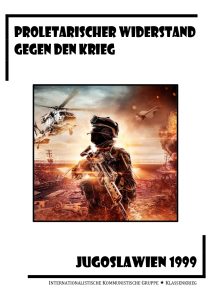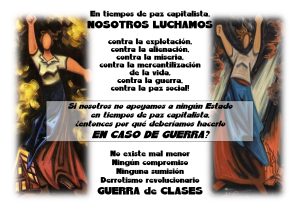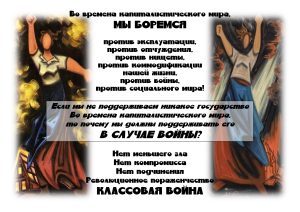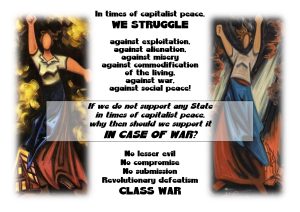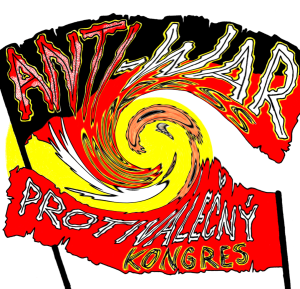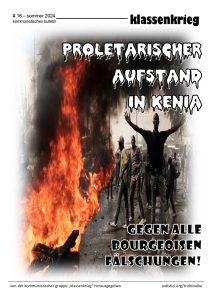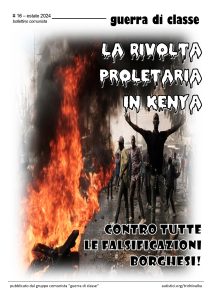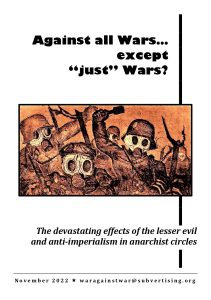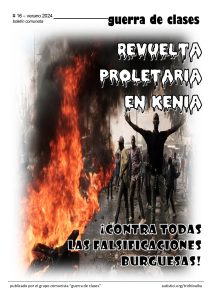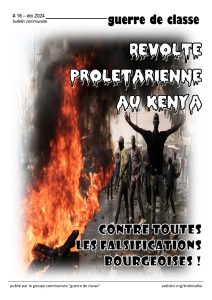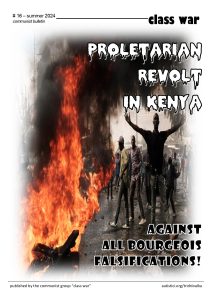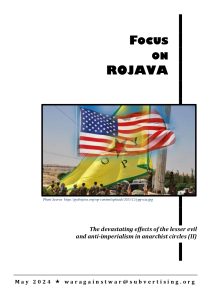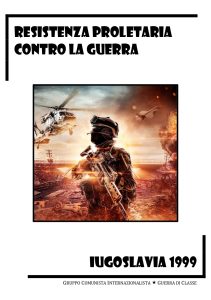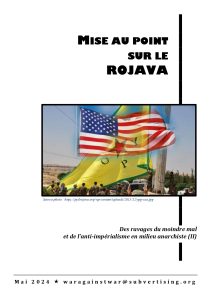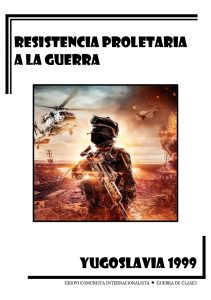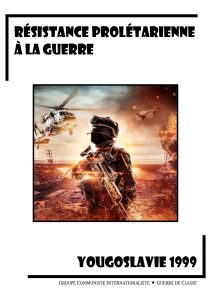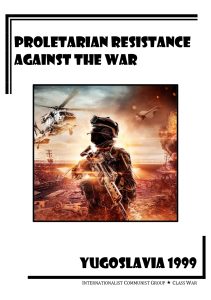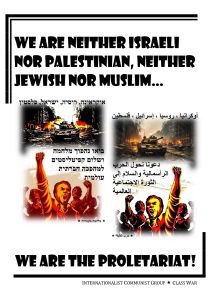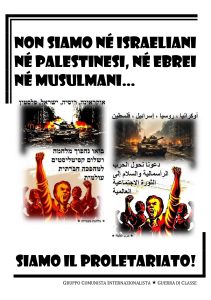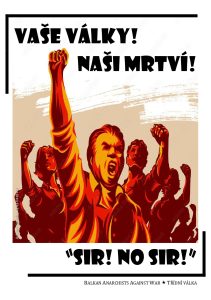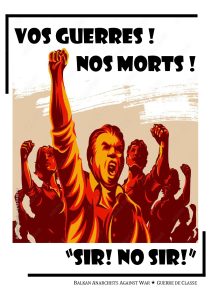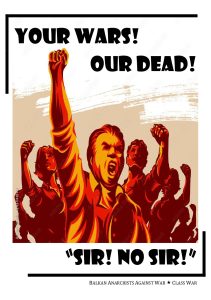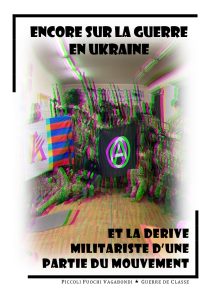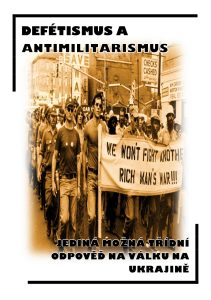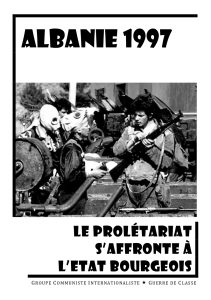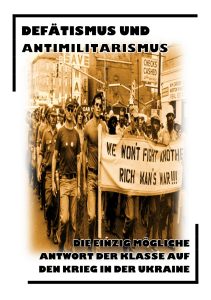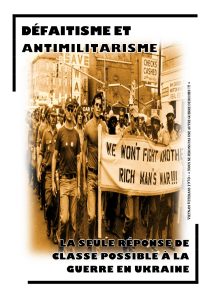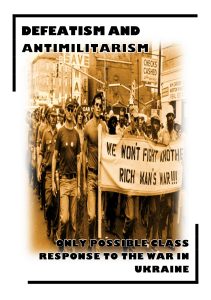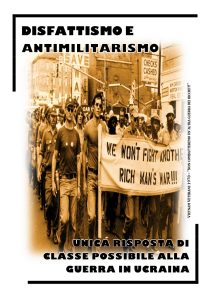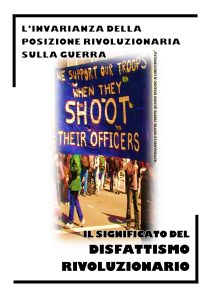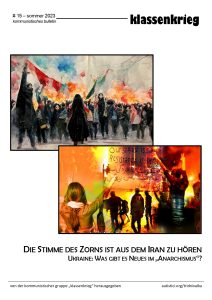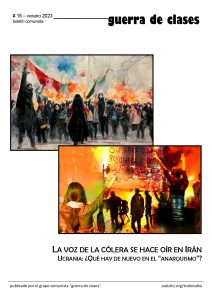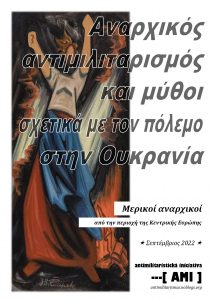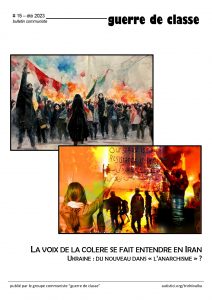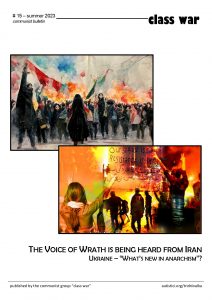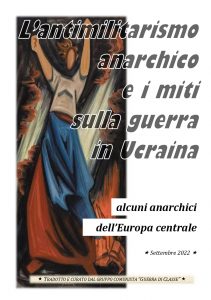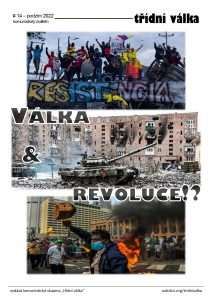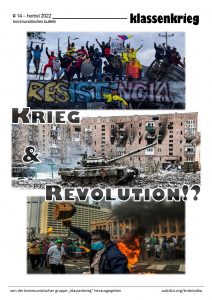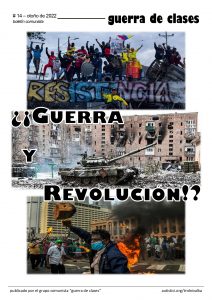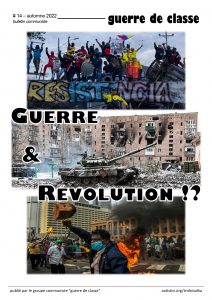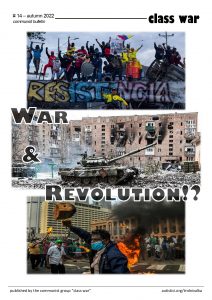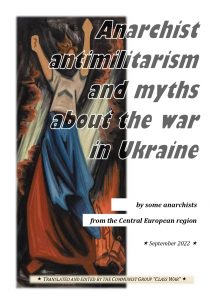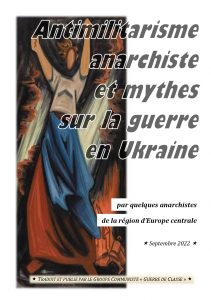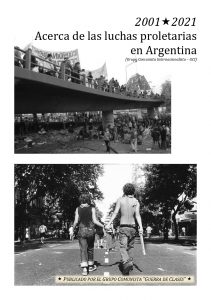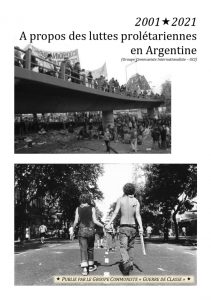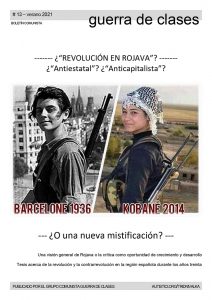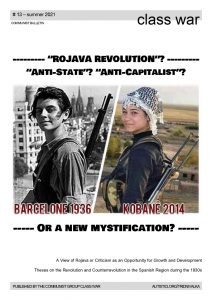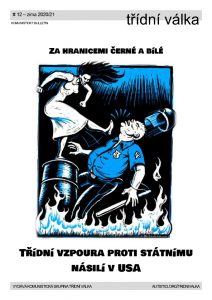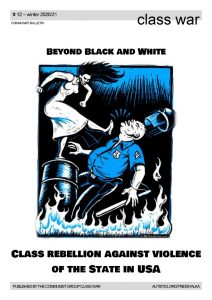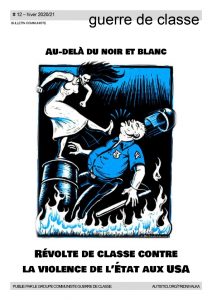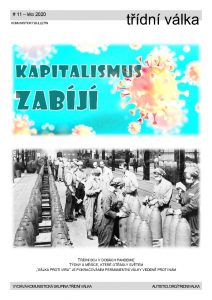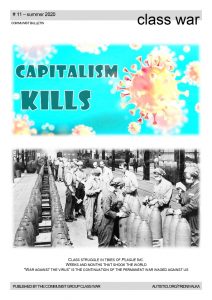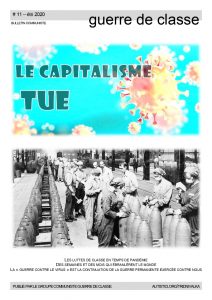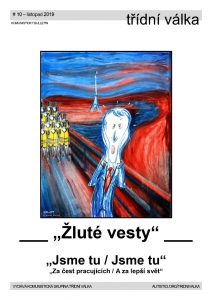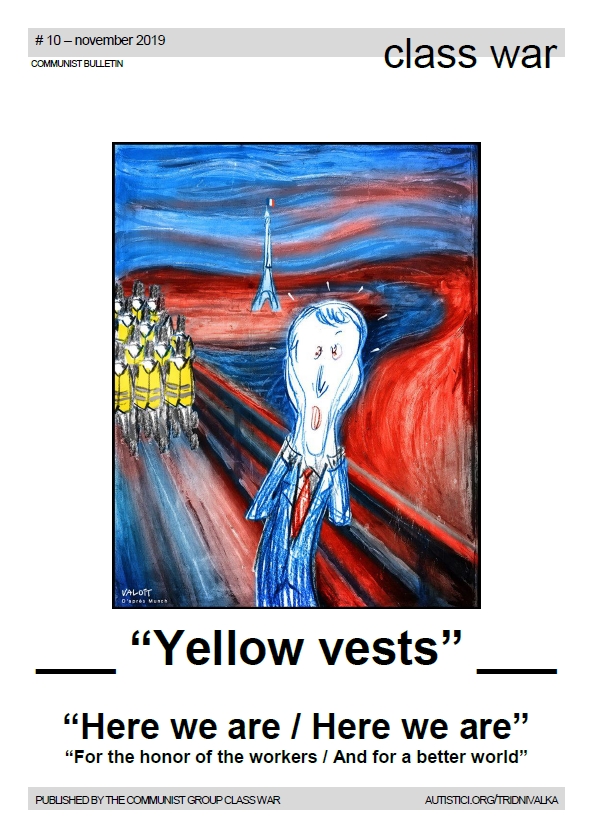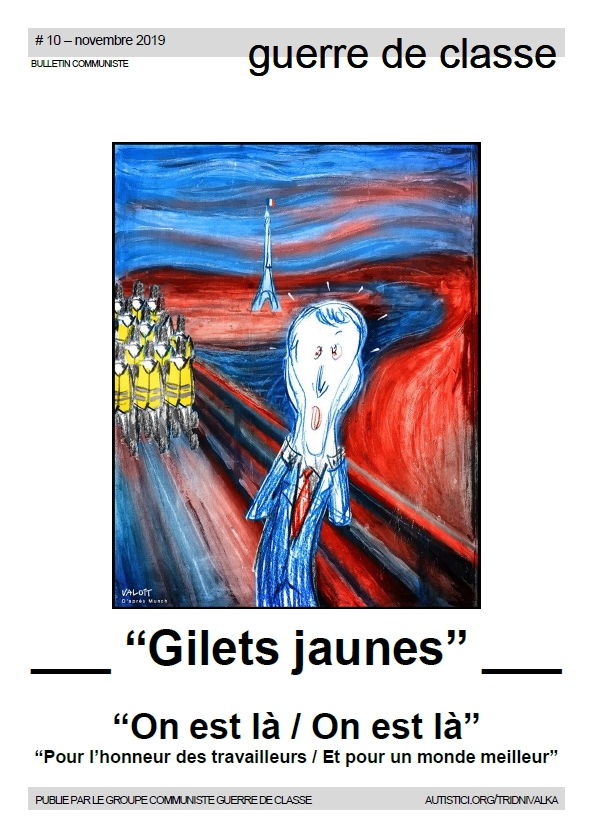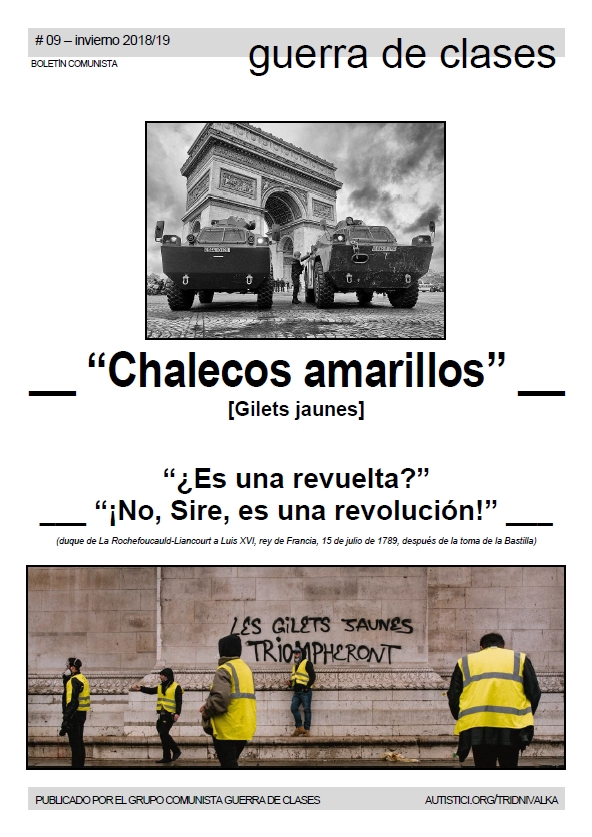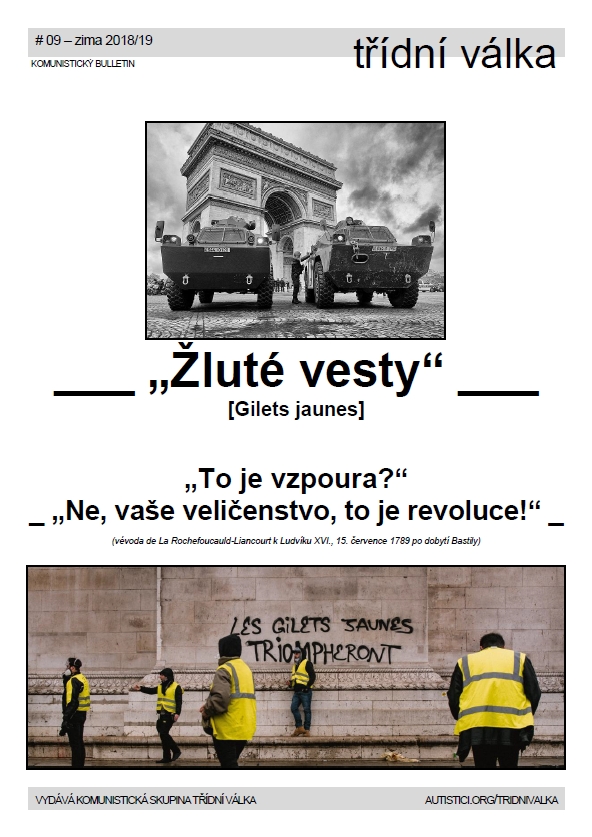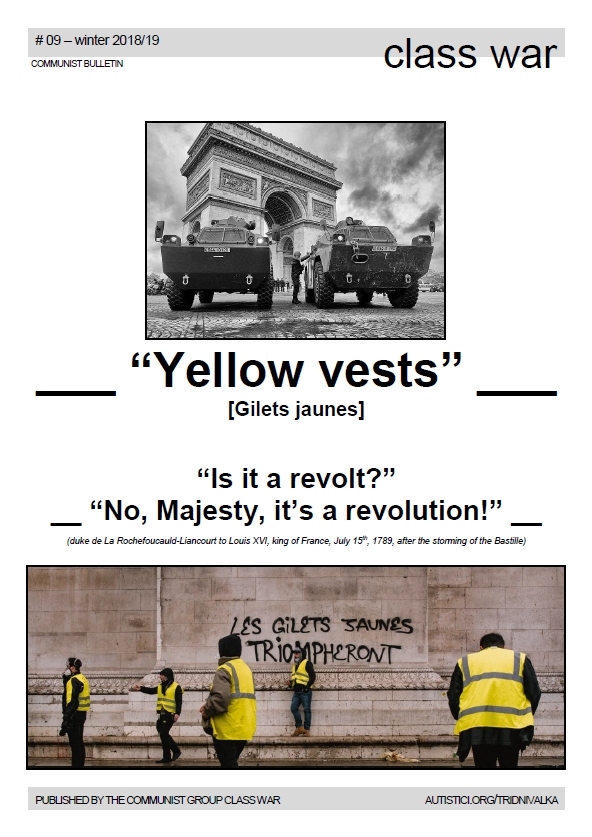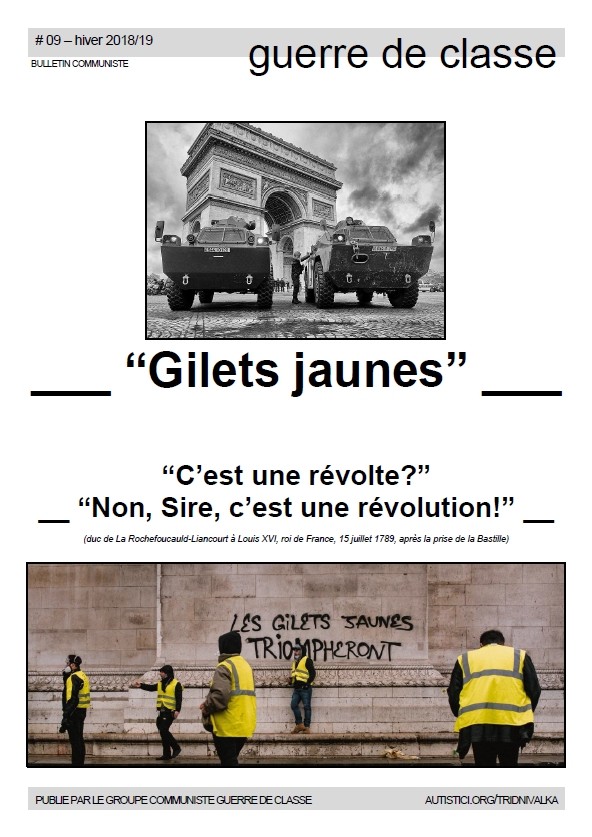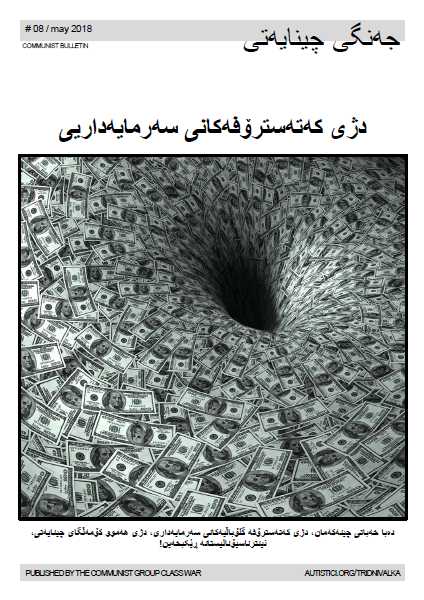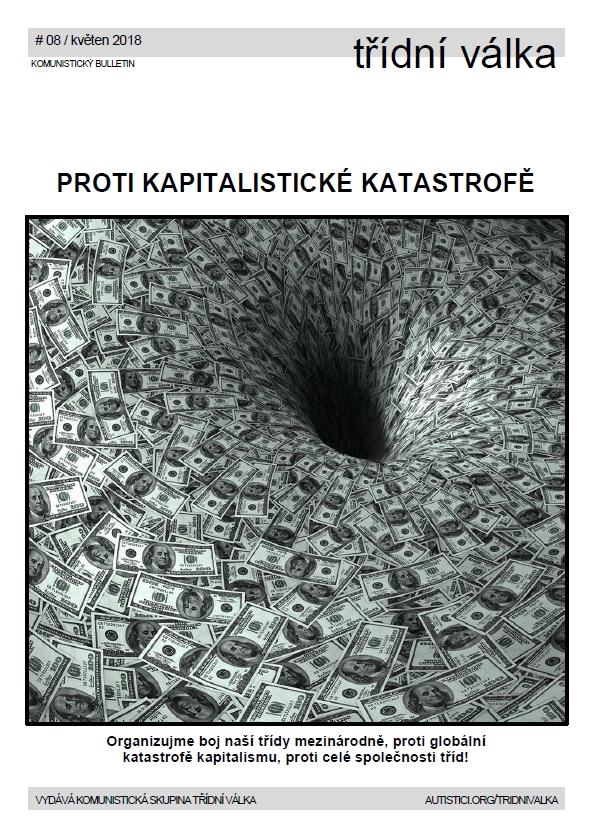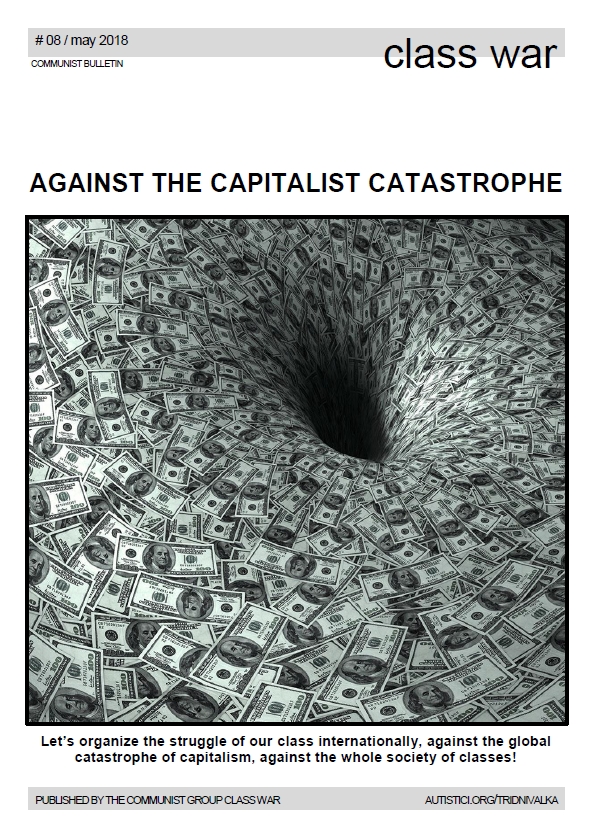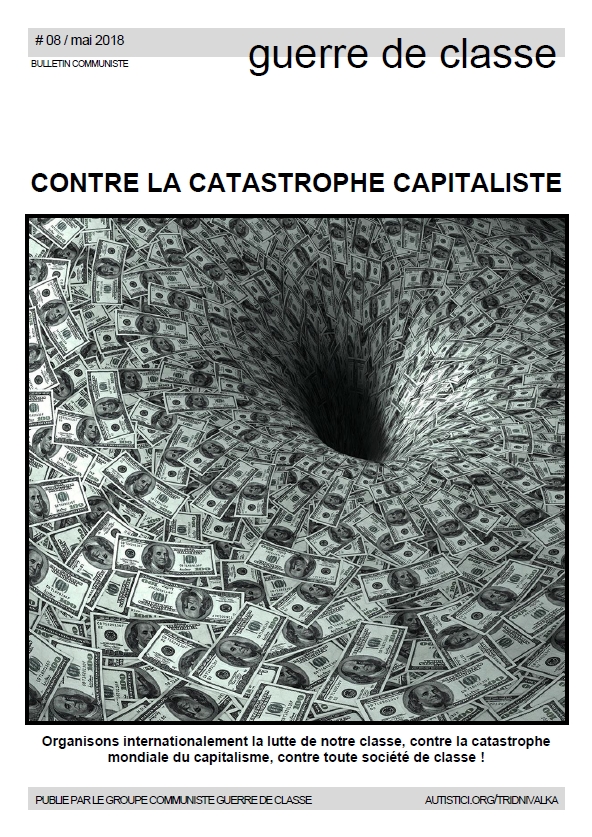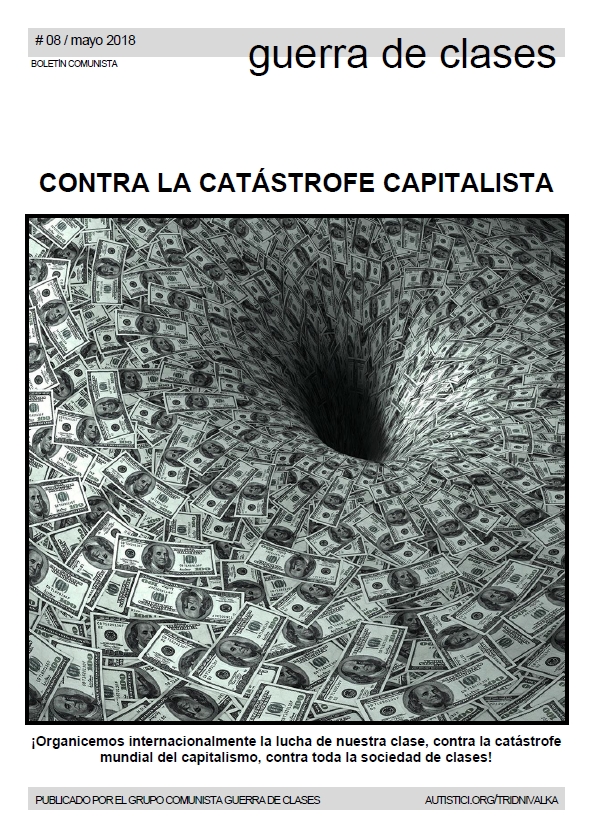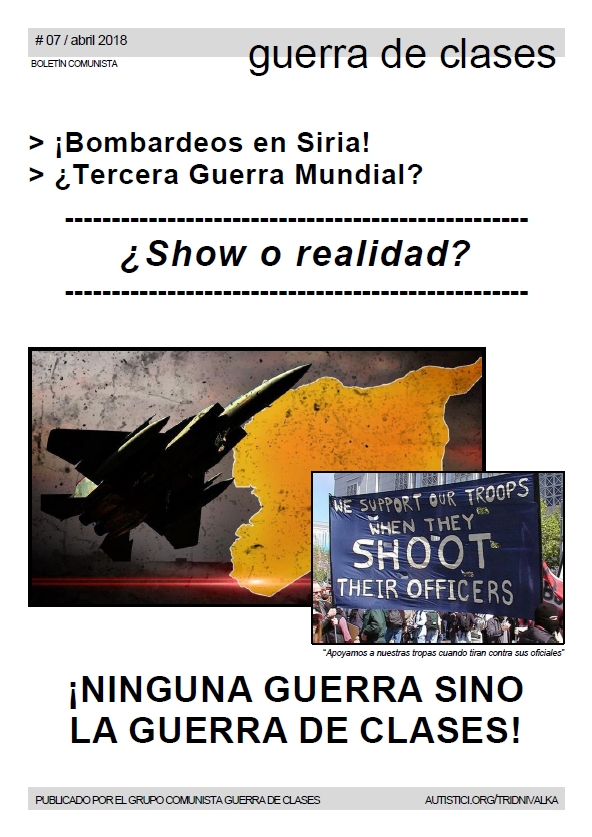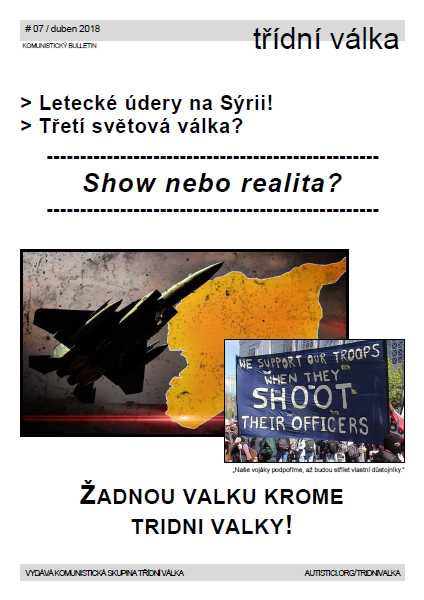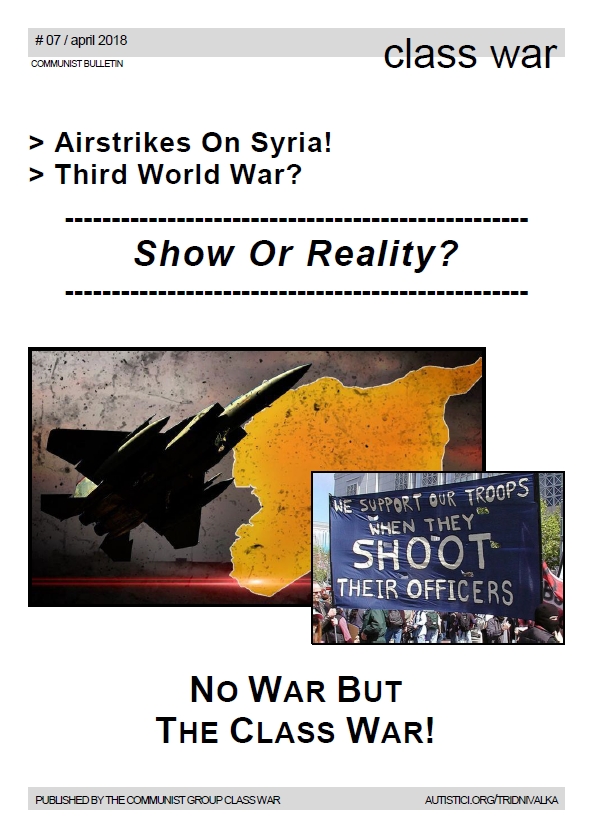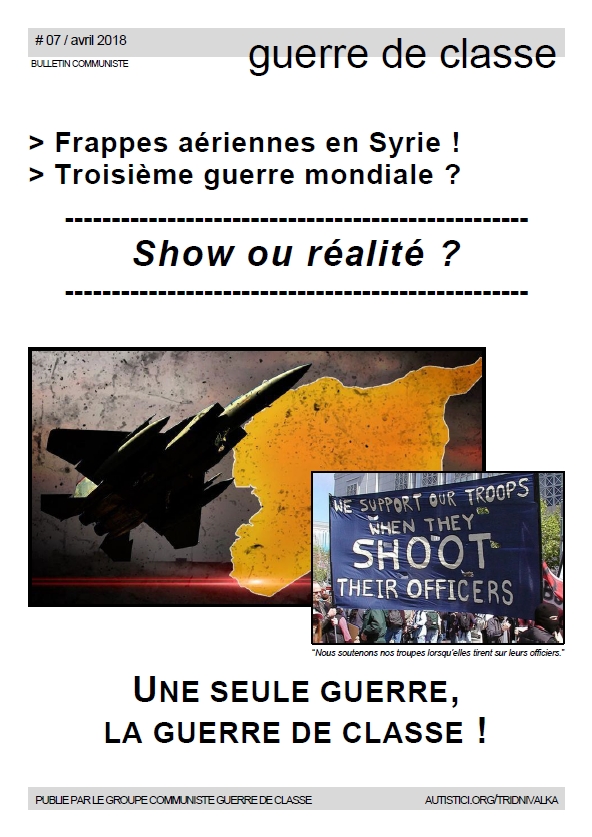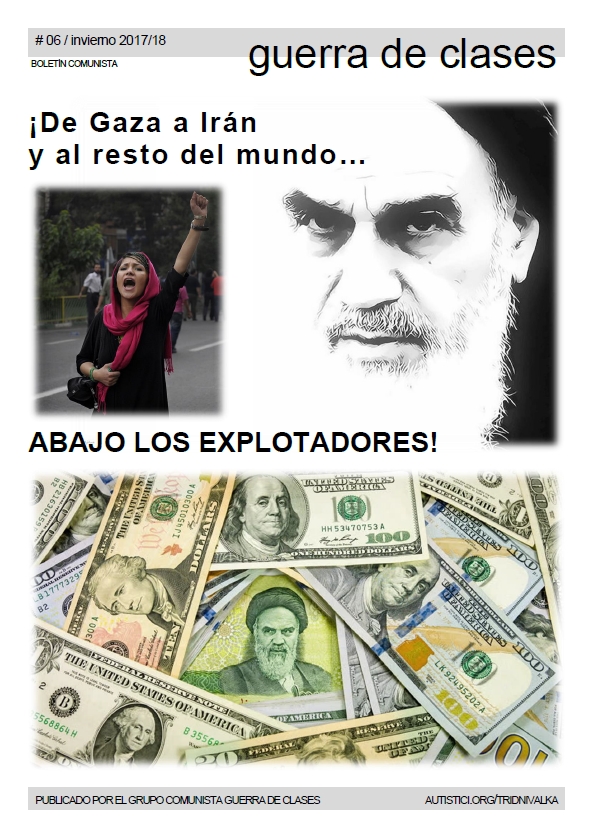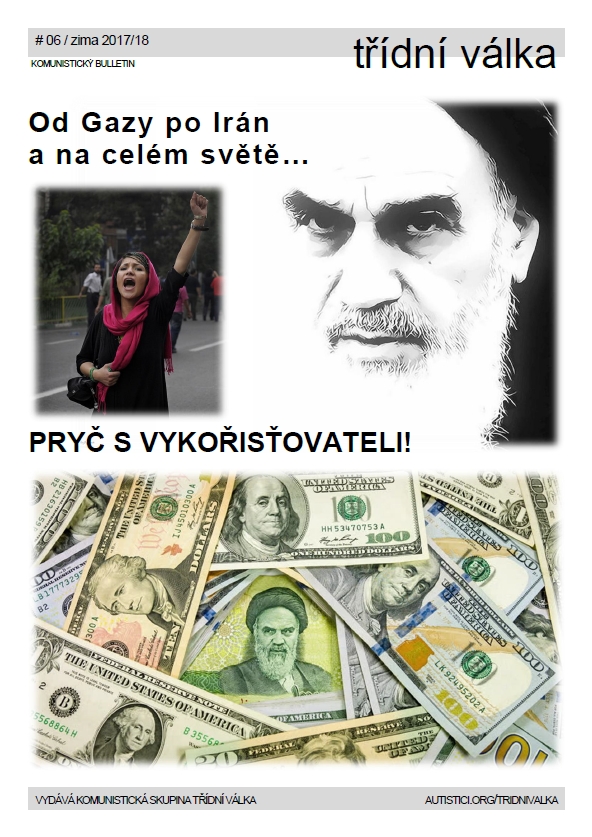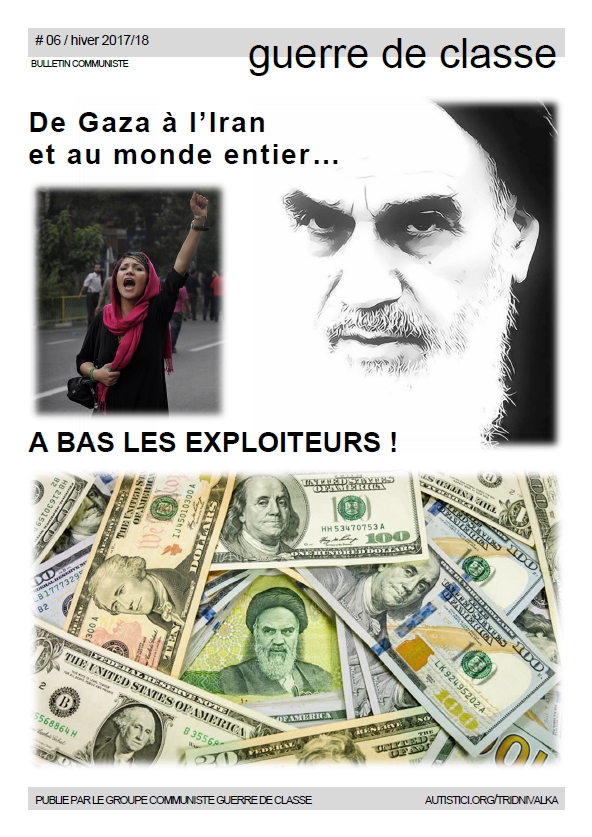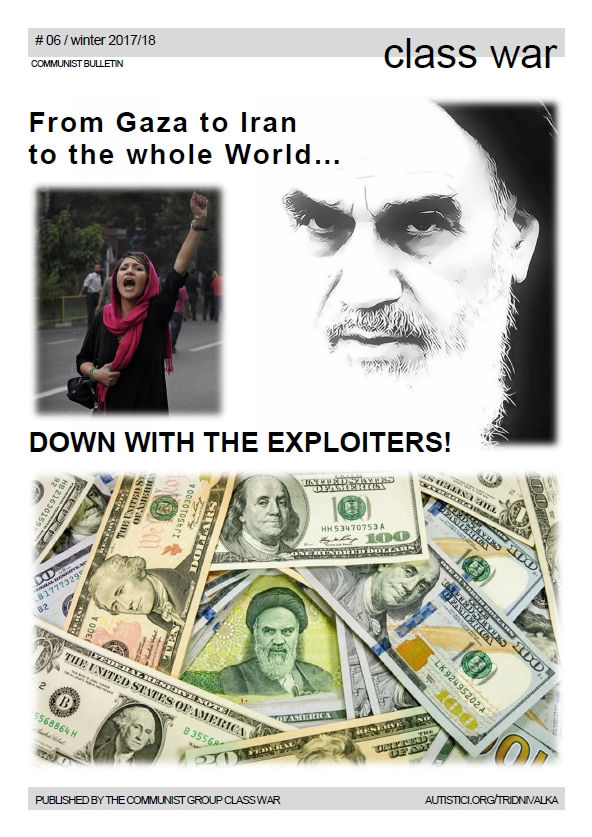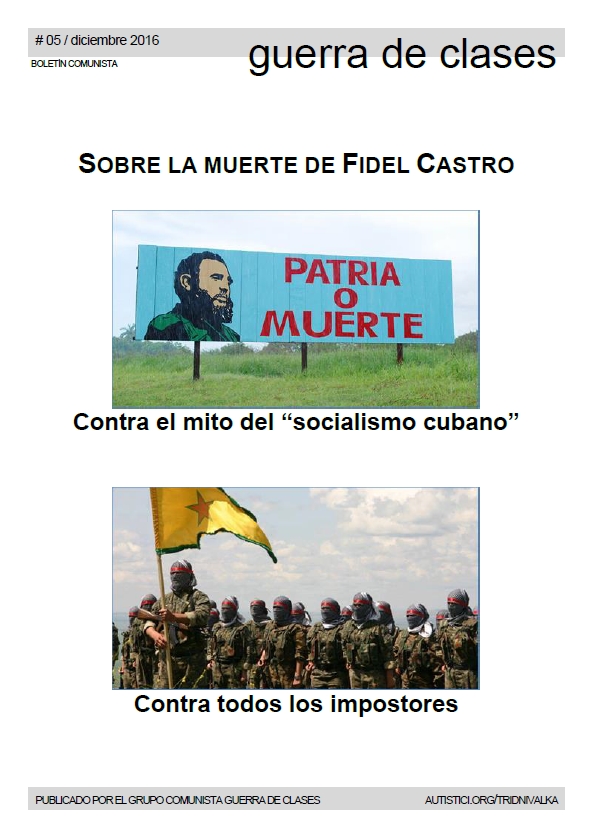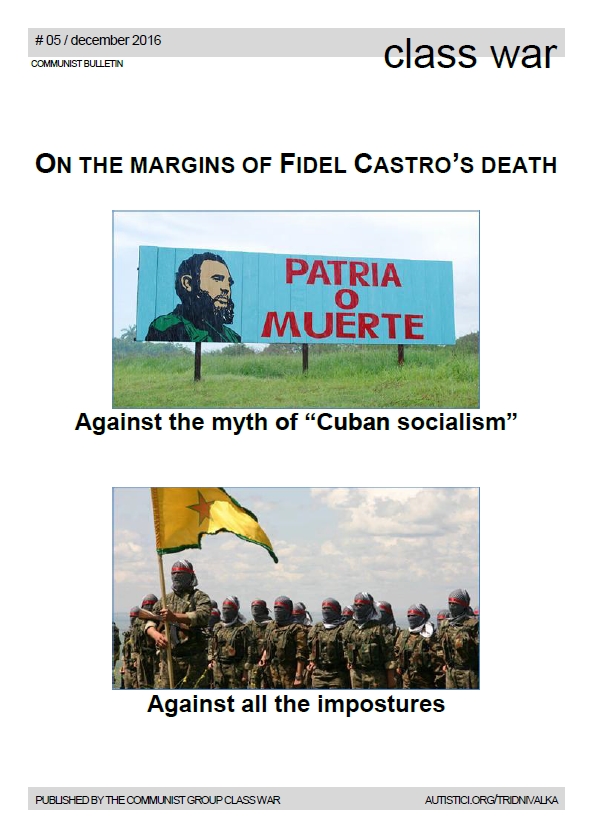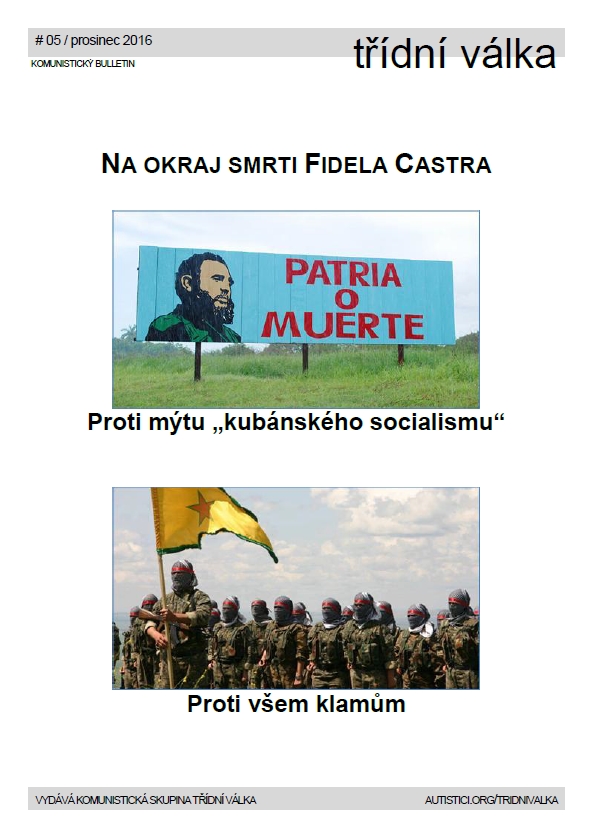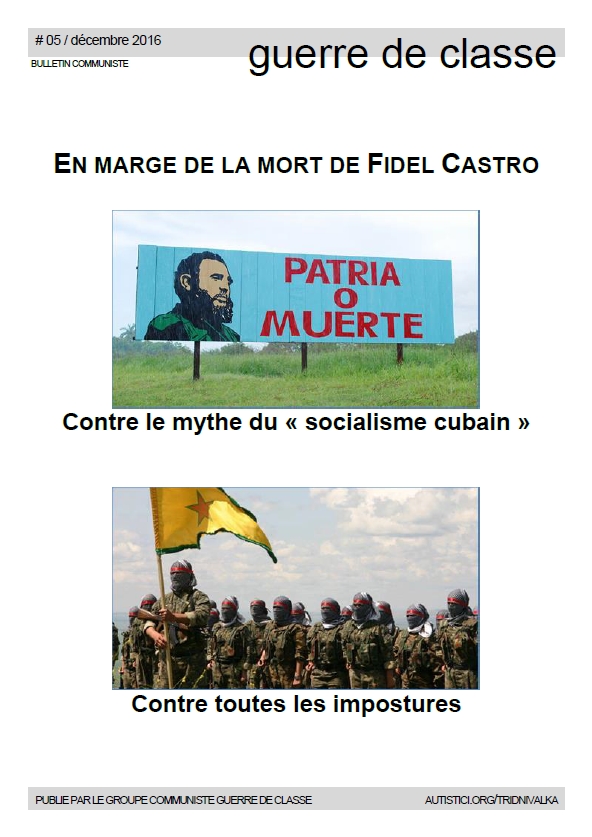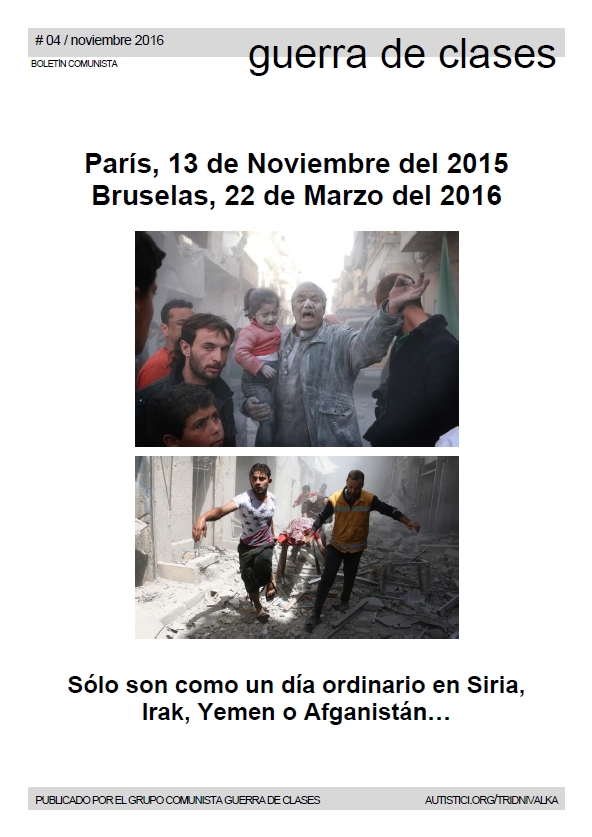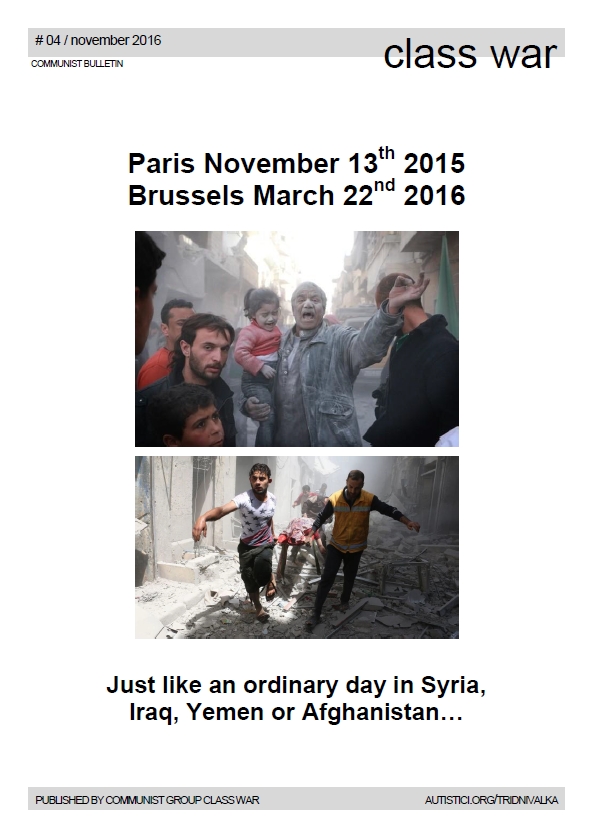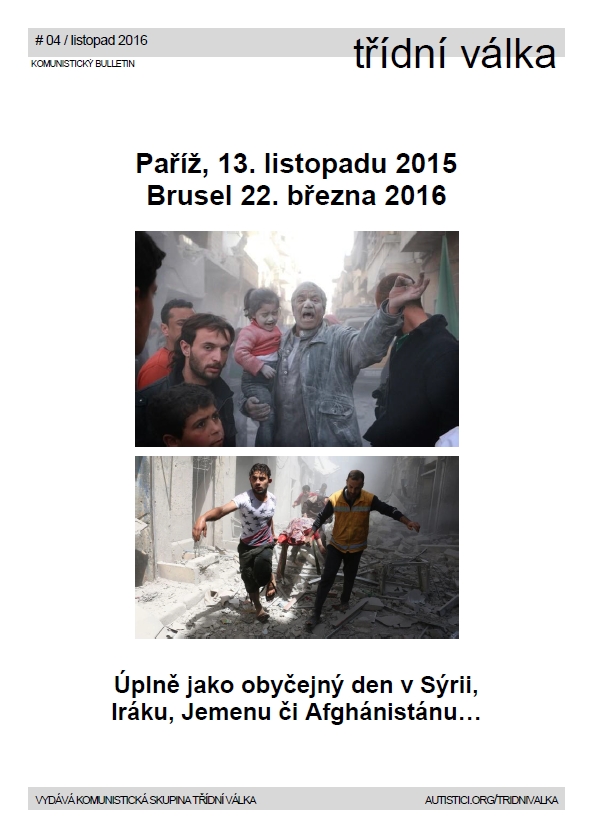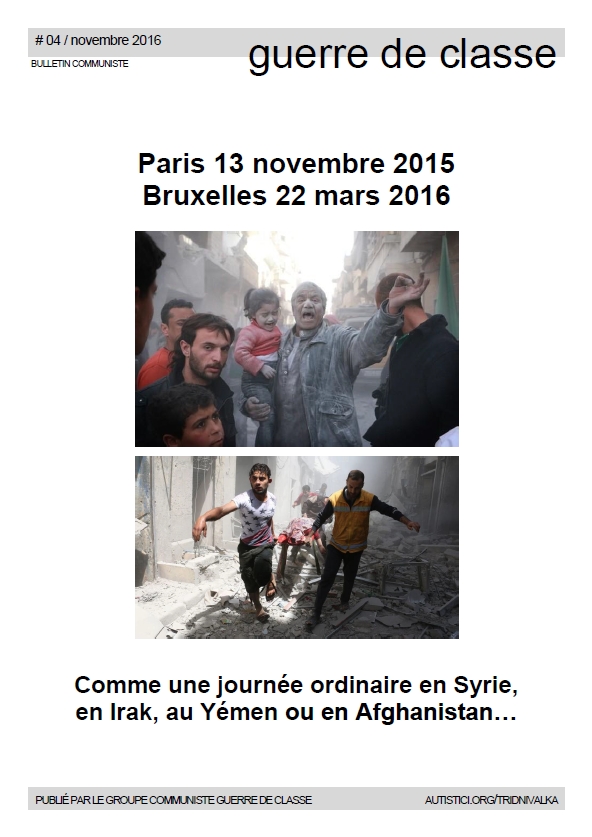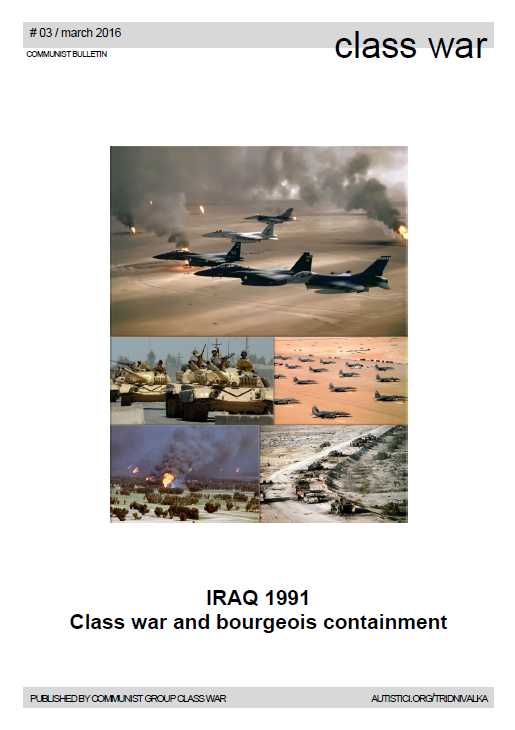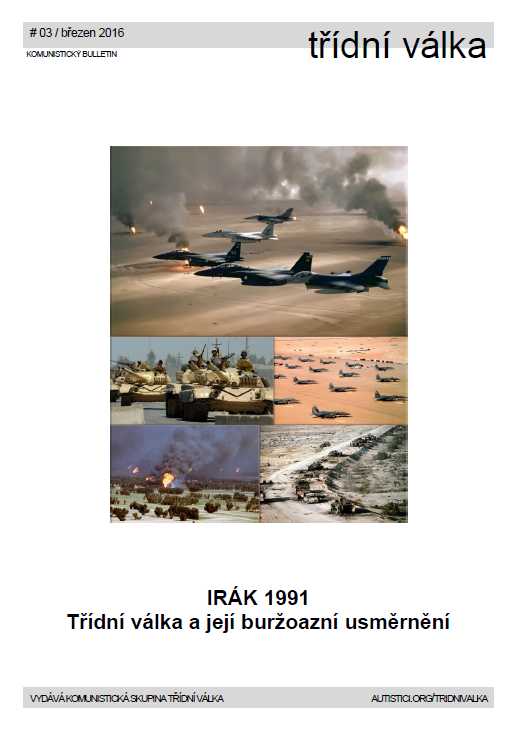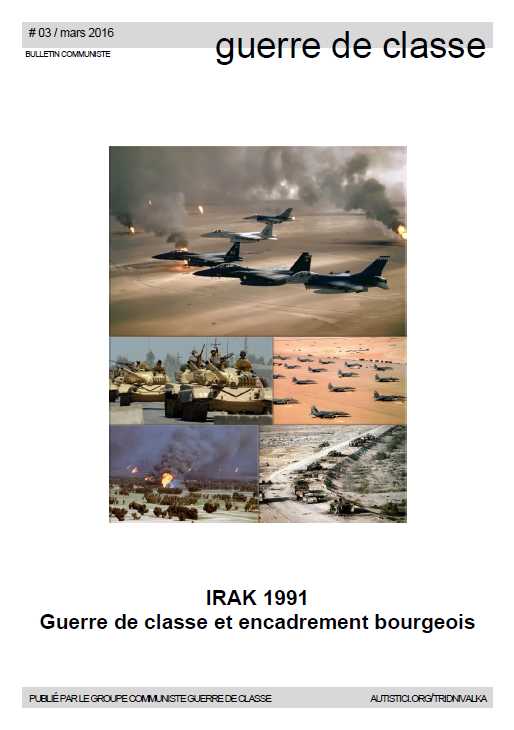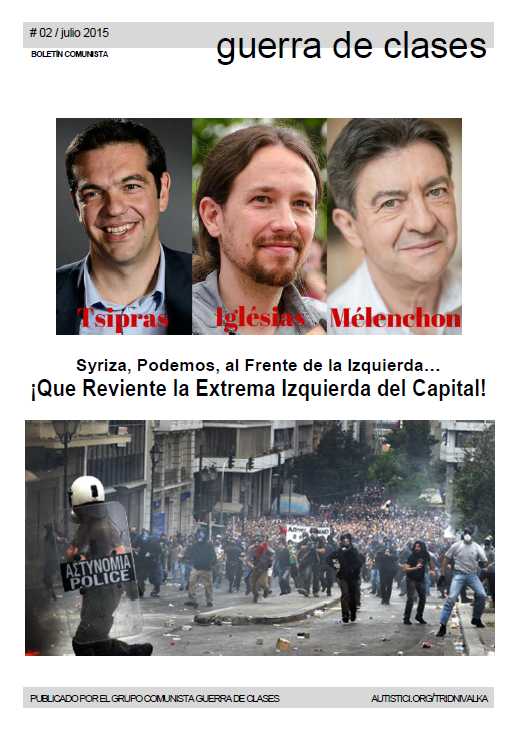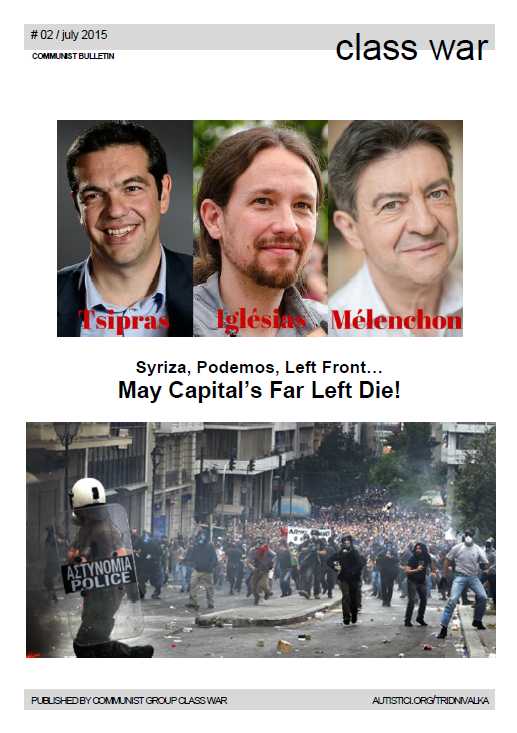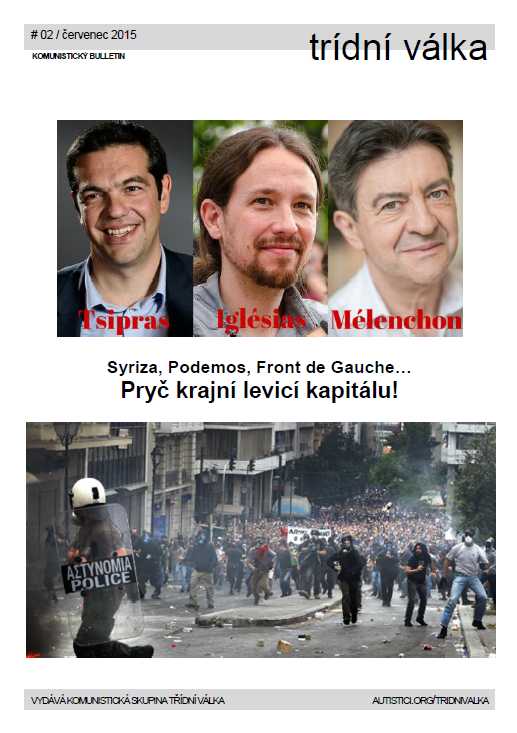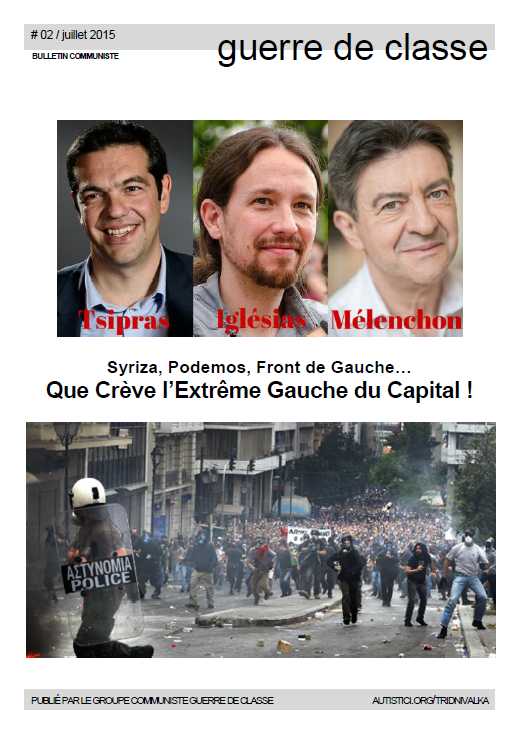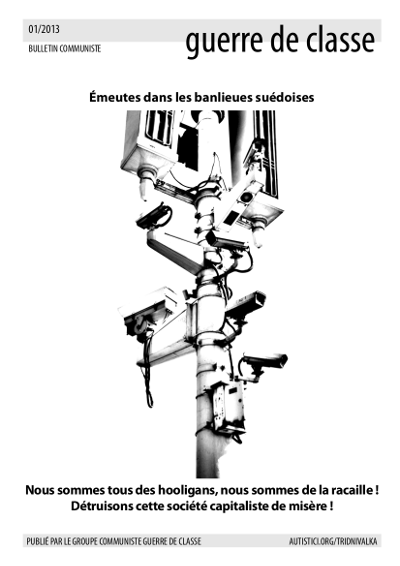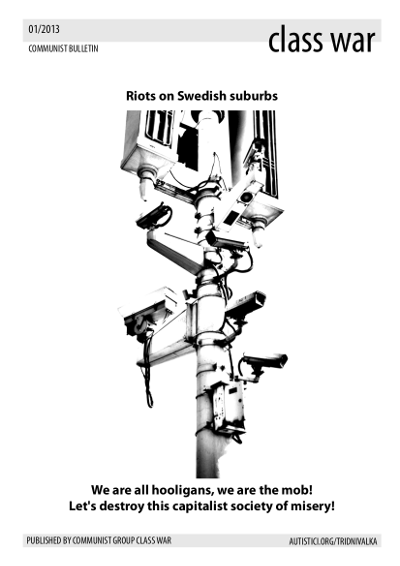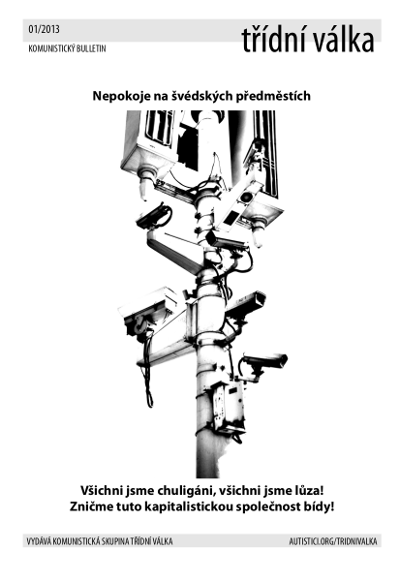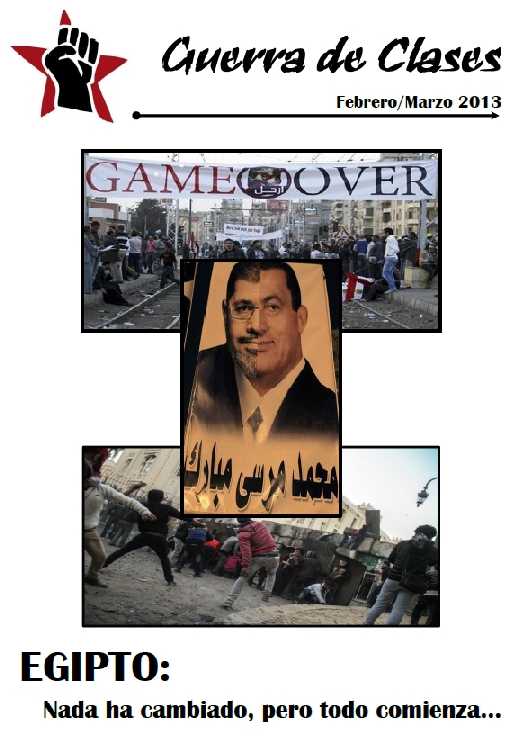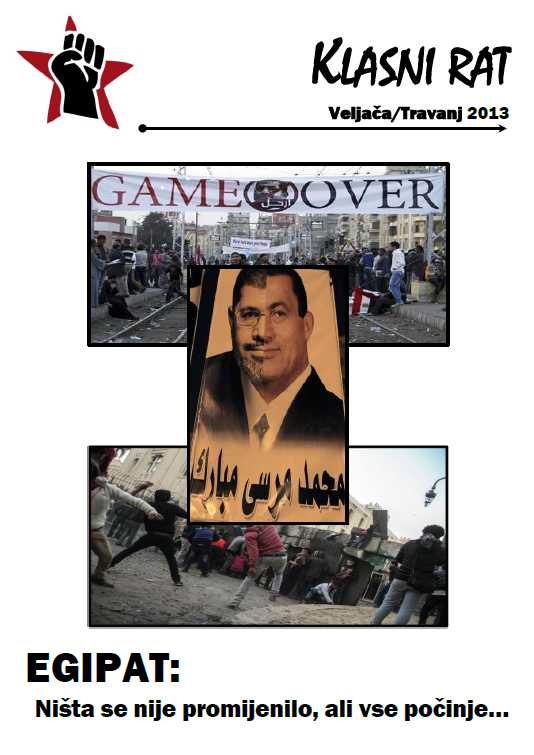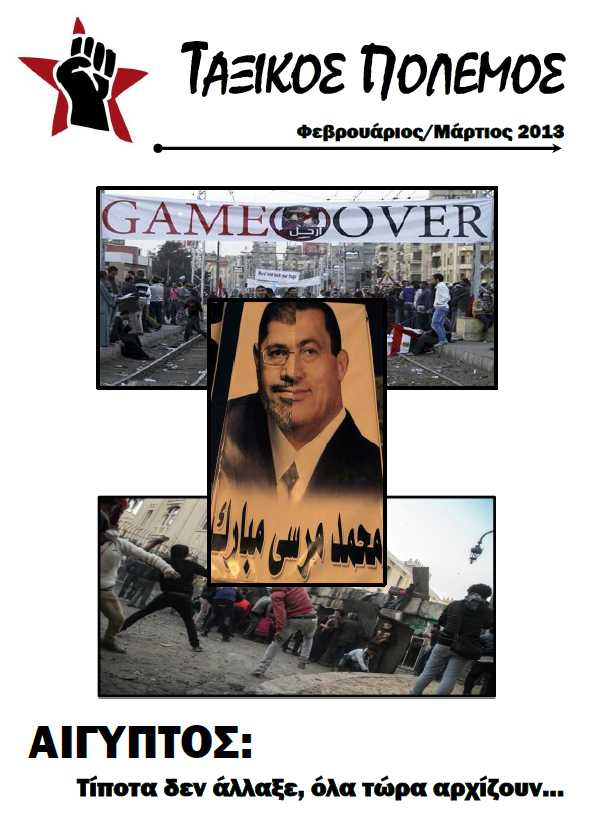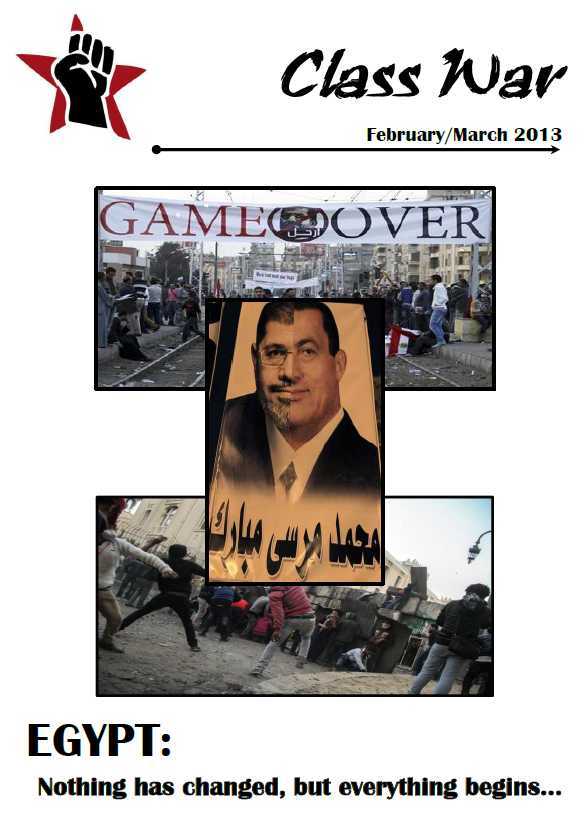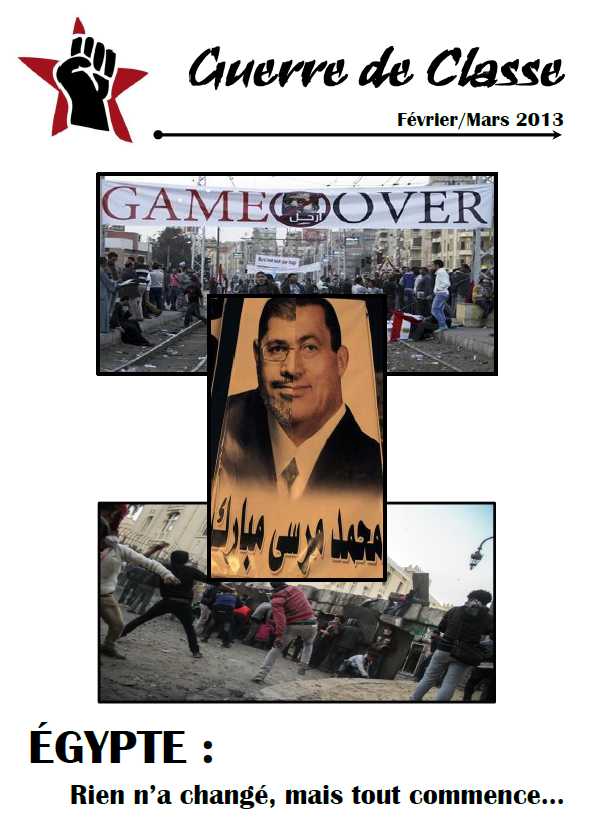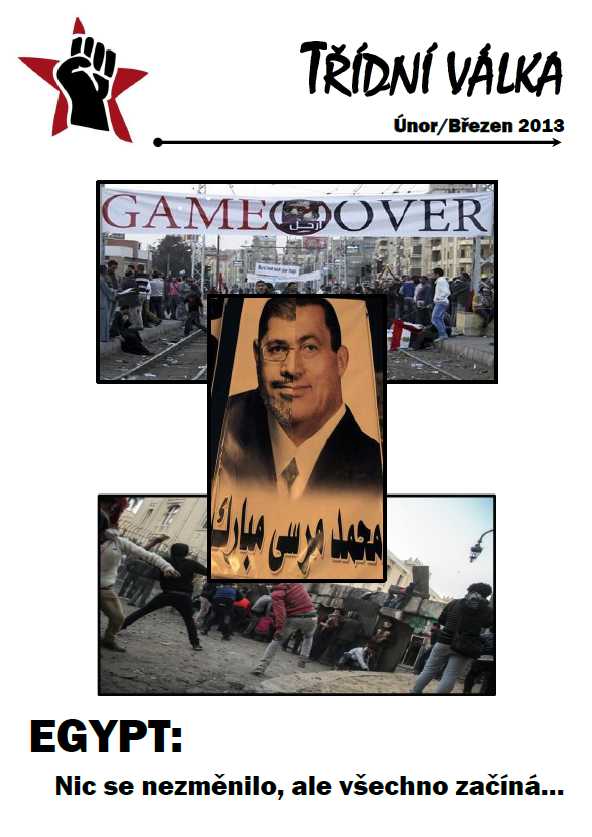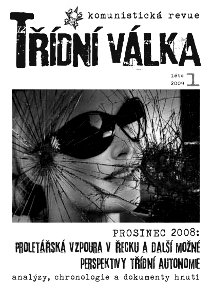| Español | English | Français | Deutsch | Italiano | Nederlands | Português ǀ Русский ǀ
- Against Capitalist War! (La Oveja Negra)
- Reflections on the ongoing capitalist butchery (Russia/Ukraine) (Vamos Hacia la Vida)
- War in Ukraine: An Internationalist Voice from Russia (Grupo Moiras)
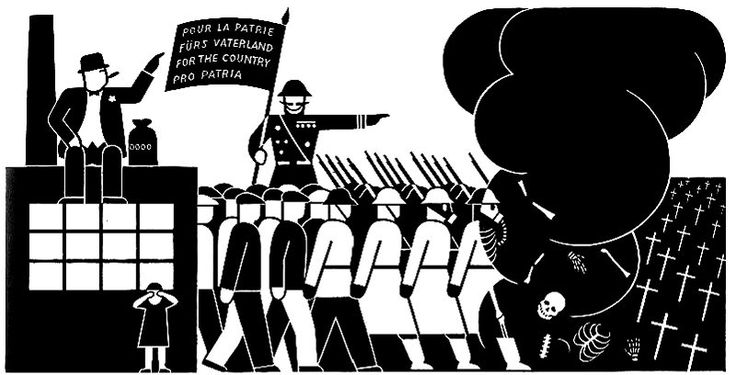
Against Capitalist War!
Source in Spanish: https://boletinlaovejanegra.blogspot.com/2022/03/contra-la-guerra-capitalista.html
No war is easy to understand, no “geopolitical” situation is simple to grasp. Even less so when it is assumed that there are no social classes in the world: there are only countries, leaders and political ideologies. Thus, there are those who support and justify the massacres and the horror of war. There are those who forget or want to make people forget that wars are fought for money. As comrades in Russia point out at this moment, behind the war there are only the interests of those who hold political, economic and military power: “For us, workers, pensioners, students, it brings only suffering, blood and death. The siege of peaceful cities, the bombings, the killing of people have no justification.”
War makes explicit the horror of a society based on accumulation and profit. It is capitalist peace by other means. What is happening in Ukraine is added to the wars and invasions that unfortunately are nothing new (Palestine, Yemen, Syria) and to the millions of dead from hunger, misery, work, preventable diseases or suicide.
In conflict zones, there are also deaths and hardships due to bombings, lack of water, food, medicine, shelter and energy. Just as it also happens in refugee camps, in prisons, on the front lines. They recruit proletarians from different countries to massacre each other for the interests of their exploiters and rulers, for the interests of the bourgeoisie! They imprison those in Russia who oppose the war and manifest it publicly and collectively. They militarize and increase the intensity of labor while imposing more austerity measures. This is war! These are the wars against the proletariat!
War is the sphere of controlled destruction, of premeditated disaster, of the management and administration of death and misery. This competition is inherent to Capital. Proletarians fight, die and suffer the state of war in the name of one or another bloc, when we proletarians have no fatherland or nation to defend. As Marx pointed out: “The worker is neither French, nor English, nor German, for his nationality is labor, free slavery, the sale of himself and of his own labor. He is not governed by France, England or Germany, but by capital. The air of his land is neither French, nor English, nor German, but the air of the factory. The soil that is his, is neither French, nor English, nor German, but awaits him six feet under. Above ground, money is the industrialist’s homeland.”
Despite everything, there are those who, determined to belong to or identify themselves with some capitalist, that is to say, murderous side, justify one war or another, one attack or another, one State or another. With stale arguments, be they Stalinist or liberal, fascist or anti-fascist, even anti-imperialist, they all concentrate on propping up exploitation and oppression: capitalism.
Of course, there are differences, just because they are all shit does not mean they are the same shit: Zelensky, Biden, Putin, NATO, Ukrainian neo-Nazis, Russian neo-Nazis. The leaders of states, their conflicts and alliances, their peace and wars, their developments and destructions, their sciences and religions, their humanitarian aids and security controls all serve only one interest: to maintain the dominance of social peace, which is nothing but the peace of the cemeteries.
There is not, nor was there, nor will there ever be “good” or “bad” bourgeois leaders, “good” or “bad” bourgeois parties; nor does it make sense to speak of “good” or “bad” nations or States. Yesterday, today and tomorrow, the interest of the bourgeois class is and will always be at war with the proletariat. Labor, exploitation, misery and war are the concrete forms of this interest.
In war and in peace we adjust ourselves “for the interests of the country”. But as we have been saying for decades and decades on all continents: the enemy is also “in our own country”, it is “our” bourgeoisie.
The revolutionary strength of the proletariat depends on its capacity to fight against the different bourgeois fractions, against the different forms of domination that Capital deploys. It is in this sense that in the face of every bourgeois war the revolutionaries stand in solidarity with their peers in other regions and, as they have done in the past, today raise and will always raise an internationalist and revolutionary slogan against war. These slogans may not currently have the necessary force to be a mass practice of the proletariat, but they are nonetheless a direction and perspective.
In peaceful and deathly Argentina, the governments lower the social wage for the good of the country, the false critics tell us that the problem is not the local bourgeoisie but the IMF. They speak to us of “people” as if in this land there were only national interests and no class interests. Thereby, they want to tame us and prepare us for even worse conditions, or even for war. In Ukraine, martial law has been decreed to repress all kinds of actions considered unpatriotic, unleashing in turn a violent campaign against people who shoplift or engage in looting. In the rest of the world, the worsening of living conditions as a result of the war has already begun. Both in the countries directly involved, in their neighbors in Europe, and in the rest of the world, it will be the proletariat who will pay the costs. When the “war” on the virus seemed to be over, another one has begun. A new justification to tighten our belts. In Argentina, during the first week of March, flour increased 52% in four days. Since the beginning of the conflict, the prices of the basic ingredients of the poor nutrition in this region have skyrocketed. And there are still those who think that they decide the course of the country because they vote every few years.
English translation: https://internationalistperspective.org/against-capitalist-war/
Reflections on the ongoing capitalist butchery (Russia/Ukraine)
Source in Spanish: https://hacialavida.noblogs.org/reflexiones-a-proposito-de-la-carniceria-capitalista-en-curso-rusa-ucrania/
“The absurdity of adopting war as a means of antifascist struggle is thus quite clear. Not only would it entail fighting against barbarous oppression by crushing the people under the weight of an even more barbarous massacre; it would even mean extending under another form the regime we want to suppress. It is childish to suppose that a state apparatus made powerful by a victorious war would alleviate the oppression that the enemy state apparatus had exercised on its own people; it is even more childish still to believe that a victorious state would leave in its wake a proletarian revolution in the defeated nation without immediately drowning it in blood. (…) particularly in the event of war, we must choose between obstructing the functioning of the military machine in which we ourselves constitute the cogs, or helping that machine to blindly crush human lives”.
Simone Weil, Reflections on War (1933)
The current stage of development of the capitalist productive forces, – which are no more than their destructive forces -, brings events in tow which occur one after the other, like an ever-growing spiral of its generalized crisis, in which converge the crisis of labor – which manifests in the expulsion of human beings from the productive process itself -, environmental devastation – of which the COVID-19 pandemic and climate change are direct consequences -, and great migratory flows, among other catastrophes which have become daily occurrences. War and militarism are inseparable from this irrational dynamic proper to capitalism: today we find ourselves confronted with what they say is the greatest war mobilization since the Second World War, with the invasion by the Russian Federation of the Ukraine, under the pretext of confronting “nazification” and defending the separatist zone of Donbass.
As if the capitalist catastrophe and the forces of counterrevolution that it mobilizes weren’t enough, we’re seeing groups that call themselves anticapitalist openly, or in a veiled manner, defend the bombardment and advance of russian troops upon ukranian cities. Some due to a sort of rusophilia related to some kind of nostalgia for the USSR, others because they consider the political and military forces of the west that are in confrontation with Russia to be the absolute incarnation of evil, and others because they consider that the russian offensive does indeed have as its objective the defense of the Donetsk People’s Republic and the Lugansk People’s Republic in Donbass and, therefore it constitutes some form of combat or support against the “fascism” of Ukraine. As such, sectors that run the spectrum from leninism-stalinism to anarchism didn’t take long to align themselves in favor of a military invasion undertaken by the State of a world superpower and its ruling class, tossing aside internationalism and whatever revolutionary perspective, relativizing the motivations and the bloody consequences of this imperialist war. The anticapitalist historical experience, which shows us that imperialist wars are nothing other than the form in which capital is restructured on the basis of a bellic dispute between the different factions of the international bourgeoisie, in which the proletariat is used as cannon fodder, and the consciousness that no State will ever mobilize its troops for motives and interests that aren’t those of their dominant class, turn to mush in the face of the temptation of defending a project of territorial autonomy – in the form of a republic, of course- against the “fascist” offensive that the ukranian State and the irregular neo-nazi militias maintain against the Donbass region. The senselessness of these positions doesn’t resist a minimal critical analysis, even under its own logic – the antifascist motivation – once confronted with reality, nor against a coherent anticapitalist and revolutionary practice either: this the development and result of the war will confirm.
From its booming years up until the current time, capitalist civilization has seated its might through war, among other forms, which is no more than the continuation of the economy through other means. Meaning, a perpetual competition between different factions of the bourgeoisie to appropriate the greatest possible portion of the mass of social surplus value, which in certainty is constantly falling due to the limit of internal accumulation which capital is butting up against. Bellic conflict has in a large part promoted development and industrial innovation, which in the same time made possible the development of the productive forces applied to the technical, scientific, and industrial “progress” of the military machine, with an eye to the conquest of natural resources, raw material, regions, competitive advantages in relation to other States and markets that allow the continuation of the ever increasing reproduction of capital and the power of the capitalist class. If capital is, above all, a form of social organization that places humanity and everything that inhabits the earth at the mercy of an unrestrained repression, with the sole objective of keeping the economy running and perpetuating the ruling class whose might depends upon it, it can be deduced then, that wars have no other purpose than to perpetuate this specific form of reproduction and its consequent social domination. Like so, the capitalist factions in confrontation for the attainment of this material basis in order to assure their more or less hegemonic position in capitalist domination, must assure this might on the military level.
In the case of this conflict that dynamic is particularly illustrative: the invasion of Ukraine is a strategical move by russian imperialism in the face of the advance of the USA-NATO western bloc. In recent decades, the technological and scientific development of the weapons industry has made possible the development of hypersonic missiles which could, among other things, reach atomic levels of potency. This implies that the State which achieves supremacy in this area of technological development could count on their guaranteed supremacy in the military arena, since this affords the possibility of putting an end to the critical infrastructure of the enemy power, immobilizing in short time their capacity of response, annulling the risk of a counterstrike of the same magnitude, so overcoming the military doctrine of M.A.D. (Mutually Assured Destruction) which took precedence and guaranteed a relative peace between the imperialist powers during the Cold War, on the basis of a matched capacity for atomic destruction at that time. Like so, the possible entry of Ukraine into the NATO military bloc and the subsequent deployment of armaments on its territory, puts the “security” of the area of influence of Russia in danger: this is the true immediate reason that provoked the conflict.
In this same sense, Russia doesn’t intend to prolong the military and territorial occupation over the Ukraine, but it intends to impose by force the “neutrality” of the ukranian State in the face of NATO, preventing its adhesion to this coalition. And in order to achieve this end, Russia will negotiate a compromise with Ukraine, and if it’s necessary it will topple the current administration and will put in place a puppet government that follows the diktats of the Kremlin.
While Putin and the russian State affirm the presumably humanitarian character of their invasion, assuring that they are protecting the lives of the Donbass separatists, the leaders of the European Union cry crocodile tears for the civilians massacred during battles – who now flee by the hundreds of thousands from their homes -, but in reality, they are frightened by the idea of a war that generates a point of no return, that harms their businesses and their energy dependency. The truth is not to be found in the public declarations of any of the powers implicated, but in the movement of their material forces – economic, political, military – which constitute the real basis of this conflict.
Antifascist defense of imperialist war
As we know, the two self-proclaimed republics of the Donbass region, Donetsk and Lugansk, have been besieged by the ukranian army and by the militias for the last 8 years, when the pro-russian government was toppled as a result of Euromaidan. The pro-NATO character of the ukranian government since 2014 and, in particular, the presence of fascists in their armed forces and the existence of irregular armed gangs of neo-nazis who made themselves visible in the Euromaidan protests and later in Donbass, and furthermore the “autonomous” and “popular” character of the separatist regions, mobilized the support of certain sectors of the international left. The militias which are composed of antifascist, marxist-leninist, and anarchist volunteers are numerous. But it is principally what is considered by many to be a battle against fascism which mobilizes the majority of these sympathies. Nevertheless, what is happening in the zone controlled by the separatists is much more complex and dissimilar than what many think to see.
What’s certain is that not only antifascists and leftists are fighting in the defense of Donbass. The militias that fight and have fought in the defense of the autonomy of that region cover the whole political spectrum, including volunteers with ideologies that are antagonistic to those of the antifascist militias, such as some groupings of the russian extreme right, for example, the Russian Imperial Movement and the neo-nazis of Russian National Unity – among many others -, who have been sending fighters since the beginning of the conflict [1]. It’s clear that the groupings that fight for the autonomy of Donbass are heterogeneous, since their motivations go from the defense of the experiment of the autonomous republic, the protection of the inhabitants of the region who suffer constant aggressions from Kiev, certain forms of pro-russian nationalism, etc…, but, even without the need for an exhaustive analysis over the political composition of the front for the defense of Donbass, it’s evident that far from being a united front and essentially antifascist – with all the limits that this perspective possesses: a defense of democracy and the state, support for a liberal bourgeoisie, interclassism, etc. –. Obviously, this doesn’t mean under any circumstances that the region of Donbass isn’t experiencing a humanitarian crisis because of the constant attacks which the ukranian army and other irregular forces make against it.
On the other hand: Does the Republic “form” represent a possibility for social emancipation from capitalist social relations? [2] Can a state, like the russian one, guarantee territorial autonomy in a region that it now uses as a justification for starting an imperialist war? If what it’s all about is the defense of the lives of the human beings that inhabit Donbass against the crimes of the ukranian State and its allies, then how is it that the attack by a superpower on cities in which a civil population resides, and the crisis that this supposes for millions of people in the ukranian territory, a considerable aggravation of human misery in the middle of the war between economic powers, between different factions of capital doesn’t represent a similar barbarity to those who sustain this perspective?
Furthermore, the crimes perpetrated by a State and by the savage neo-nazis, don’t automatically turn the whole population that inhabits Ukraine into criminals, nor neo-nazis.
Only someone who has been blinded by ideology could affirm that the human beings that live under the dominion of a ruling class and its State, are only simple extensions of that ruling class and that State. The relativization or simple omission by some sectors of the left and of antifascism in respect to this is dazzling. The senselessness and the contempt for human life which capitalist logic engenders permeates even those who claim to oppose the effects of this unhealthy socialization. Even if we wanted to imagine that the ruling class in the Ukraine is a reflection of its inhabitants, or if we wanted to believe that “In Ukraine they’re all nazis”, as the pro-russian propaganda stupidly says, this mystification falls apart as soon as we try to comprehend its origin: the extreme right and neo-nazi movements actually existing in the Ukraine, and in particular the Azov Batallion, a grouping that became well known in 2014 for fighting the militias of the People’s Republic of Donetsk, which later went on to form part of the ukranian national guard, and which today boasts hundreds of active members. This has contributed to the characterization of the governments after Euromaiden as “neo-nazis”, a characterization which russian propaganda has contributed to enormously. But, although it’s certain that democracy is where the different political factions of the bourgeoisie dispute the management of capital by means of the State, it’s also certain that during the last presidential elections in the Ukraine of 2019, Svoboda [3] – “Freedom”-, the party which concentrated the adhesion of the extreme right electorate, only obtained 1.62% of the votes. This should be enough to put the characterization, which in addition is rather imprecise, of Ukraine as a “nazi” or “ultra-right” nation into question, above all in respect to its civil population.
Since the war began we have heard and read affirmations like: “Anything is valid in the struggle against fascism” that justify the russian invasion or relativize it. Even, as they tell us, if the battle against fascism has the objective of preventing the advent of barbarity and making spaces for social emancipation possible, then how is it that the political, economic and military consolidation of a capitalist country – to the detriment of another – could bring us something different from what it was hoped to prevent? What makes them think that that a bourgeois faction in a period of crisis is going to guarantee a lesser grade of barbarity than that of their ideological opponents? Fascism, from the hand of Hitler, Franco, or Mussolini, implemented the measures that capital demanded of them in their epoch, measures which weren’t fundamentally distinct from those that Stalin imposed on the proletariat in different territories [4]. If again the thesis of antifascism turns out to be unfeasible in the abstract, wanting to relive it 100 years later is completely anachronistic. For revolutionaries, and particularly for anarchists, the tragic experience of Spain in ‘36 should suffice to keep oneself free of illusions in respect to antifascism, which is no more than the defense of the democratic forms of capitalist management, reconciliation between classes, the option of the “lesser evil” and the abandonment of the revolutionary horizon [5].
Given everything that’s been expressed about the capitalist dynamic and the wars that it engenders, and also given the observations on the ground where this particular conflict unfolds, it’s doubtful that the possibility for some sort of social emancipation could arise in the midst of a carnage directed precisely to perpetuate the domination of one of the blocs in dispute, which doesn’t mean anything else than the worsening of capitalist domination, of the dictatorship of the economy over all that lives. And this is difficult to refute: two world wars, the genocide and the disappearance of entire villages, the psychic destruction of the individuals under its domain, and the destruction of the biosphere have already greatly demonstrated that the international bourgeoisie already made their choice long ago, and that they will not hesitate to continue expanding their destructive forces to unimaginable peaks in order to keep their productive machine running, knowing that the “pie” is getting smaller and smaller and is divided into fewer parts. This imperialist war will not bring anything but a global capitalist restructuration in the middle of a crisis that doesn’t cease to deepen. Therefore, it’s clear that those who defend a side in this war, despite their intentions, do no more than position themselves on the defending side of the existing order.
Crisis of consciousness and consciousness of crisis
The different phases of capitalist development engender their own forms of socialization and with them their corresponding limits of consciousness. In the genesis of the workers’ movement, the imperialist wars found themselves faced with the conscious opposition of certain mobilized sectors of the proletariat. The rudimentary state of the capitalist society of that time, in contrast to the activity developed by the proletariat at least half a century earlier, allowed for the emergence of an early internationalism in order to fight against the war and capital. The consciousness of the necessity for an international perspective and the conclusion that this can only be affirmed by opposing the totality of the bourgeois forces engaged in war is the logical premise for a movement of global emancipation. It is in the middle of this panorama that the most consistent sectors of the proletariat opposed, against the imperialist war in 1914, the slogan of revolutionary defeatism – despite the chauvinist and patriotic drift of the majority – : In the local territory, down with all factions of the local bourgeoisie. And yet, this position only resonated with thousands of proletarians mobilized on the fronts, when the war became an unsustainable burden on the living conditions of the working class in general. In the current bellic conflict between Russia and Ukraine, although it’s possible there won’t be any immediate results from calling for revolutionary defeatism [6], it’s important to point out the internationalist perspective to, above all, confirm it against cycles of revolt at the global level which have been experienced in recent years: the crisis of consciousness has revealed itself tragically as the consciousness of the crisis.
Today, nevertheless, the material conditions have changed and add up a multiplicity of elements to take into consideration. In this context we are witnessing the proliferation and intensification of old reactionary and nationalist tendencies: the xenophobic attacks in the northern region of Chile, the emergence of new nationalisms and even the conservatism of radical islamism are symptoms of that. This development has a paradoxical dynamic since the more that capital, which is the empirical foundation of the nation state, enters into crisis, the more the conservative tendencies are exasperated as a response to the crisis, as forms of preserving by force a normality which is crumbling away on every side. With distinct motivations, the exasperation of the reactionary tendencies that blame “scapegoats” for the degradation of our existence, express a superficial, partial and truncated critique of the system, a breeding ground for the maneuvers of a neo-populism that displays itself as “rebellious” and “unyielding”. Lamentably, this fragmented vision also strikes at the revolutionaries. Yet, the development of capital, the restructuring of the labor/capital relationship and the deepening of the relationships based upon the commodity, as a global and interdependent social system, have created and demand a new basis upon which to propose the necessity for a human community liberated from the mediations that maintain their domination: the State and Capital.
What they call “geopolitical” reorganization is no more than an old inter-bourgeois dispute, aggravated by the profound crisis of valorization that has come to scourge us since 2008. The capitalist barbarity is present since its beginnings and in its progression it has overcome various limits at the cost of the blood and misery of the proletariat: today we see how it continues trying to overcome its fundamental contradiction, accelerating the transformations of the capitalist mode of production and reorganizing the dominant capitals through armed force, which can only deepen the crisis – literally annihilating excess populations, expelling human labor from the production process and destroying the earth in order to try to valorize it -. The war between Russia and Ukraine is a direct consequence of this crisis which obliges the capitals and their States to wage the already classic disputes for resources, markets and territories, but with a destructive power of a reach never before seen: the arms race testifies to this fact. The confusion that it generates among radical sectors cannot be ignored, and facing this, it is necessary to defend the revolutionary principles indicating the nature of war in the current context and the social decomposition in that geographic zone since the fall of the USSR. The proletariat has only recently raised its head after the last defeat that it suffered following the cycle of struggles of the 60’s-70’s, and expresses that the material necessities of our existence now not only can’t be resolved through capitalist social relations, but that these relations have introduced the risk of extinction [7]. We are, therefore, in a qualitatively distinct historical situation, where there doesn’t exist anything similar to the old working class or its organized international movement: It must be assumed once and for all that these conditions will not return. The promises of security and well-being that capitalism publicized for decades are dissolving everywhere, and in their place lurks the permanent state of emergency and a growing degradation, without precedents, of our living conditions. Nevertheless, it is the same conditions that have imposed the dissolution of those old forms of socialization and the crisis of capital which have created the basis for an internationalism of a new kind: by placing the whole world in the same catastrophic situation, the structural crisis which we are bearing, it pushes us towards alliance between the exploited of the world as a necessary response in facing the crisis, in facing the devastation of the planet and the constant threat of war, the only realistic solution against the destruction imposed by the capitalist irrationality and its effect on the human beings that bear its socialization. It’s becoming increasingly clear that there are only two options: international human community or capitalist apocalypse.
Vamos Hacia la Vida, March 2022
[1] See “Antifascismo y extrema derecha: compañeros de armas en el Donbáss”: [TN: Machine translation: https://politikon-es.translate.goog/2014/11/14/antifascismo-y-extrema-derecha-companeros-de-armas-en-el-donbass/?_x_tr_sl=auto&_x_tr_tl=en]
[2] Not even the application of the leninist strategy of “the right of nations to self-determination” resists any sort of analysis; at the start of the 20th century, when the regimes of some colonies hadn’t yet totally disintegrated the communitarian relations, it was already denounced as counterrevolutionary by comrades such as Rosa Luxembourg and the distinct communist lefts: “They did nothing more than lend the bourgeoisie of all the neighboring countries the best of pretexts, and even the banner for their counterrevolutionary aspirations” Now, a century later, this proposal shows itself to be an excuse and a banner for the imperialism of the Russian Federation. On the other hand, the concept of ‘people’ to refer to the population of a country doesn’t make any sense facing a society divided into classes at a global level.
[3] Who defend antisemitism, the implantation of a sole national language, militarism, ethnocentrism, crypto-racism, homophobia, anti-abortion positions, and the nationalization of enterprises.
[4] A hyper-centralized state, an omnipresent repressive apparatus, moral conservatism, chauvinism, the militarization of labor, concentration camps, the persecution of dissidence, etc.
[5] In this sense we recommend: “Fascism / Antifascism” by Gilles Dauvé [https://libcom.org/library/fascism-anti-fascism-gilles-dauve-jean-barrot]; “Summary of Amadeo Bordiga’s Thesis on fascism in 1921-22” by Augustín Guillamón. [TN: no english version available]
[6] In spite of what was pointed out earlier, it’s necessary that the revolutionary minorities denounce the war without reserve, in the face of so much disorientation and programmatic bourgeois lackeyism into which falls the left, but also sectors of anarchism, facing bellic conflicts such as this one. Agitation and propaganda for revolutionary defeatism, sabotage and desertion, though it might not be immediately effective, is necessary as a revolutionary perspective. In this sense we recommend the following texts – among many others – :
– “A few fundamental positions of proletarian internationalism” by Grupo Barbaria [TN: Machine translation: https://barbaria-net.translate.goog/2022/02/26/algunas-posiciones-fundamentales-del-internacionalismo-proletario/?_x_tr_sl=auto&_x_tr_tl=en ];
– “Proletarians in Russia and in the Ukraine! On production front and military front… Comrades!” by Třídní Válka (https://www.autistici.org/tridnivalka/proletarians-in-russia-and-in-the-ukraine-on-production-front-and-military-front-comrades/);
– “The war has begun” by KRAS-AIT (https://aitrus.info/node/5922)
[7] See: “The Instauration of the Risk of Extinction” by Jacques Camatte (2021) (https://www.ilcovile.it/scritti/COVILE_B_554_Inglese_1_Instaurazione.pdf)
English translation: https://malcontent.noblogs.org/post/2022/03/28/reflections-on-the-ongoing-capitalist-butchery-russia-ukraine-vamos-hacia-la-vida/
War in Ukraine: An Internationalist Voice from Russia
Source in Spanish: https://grupomoiras.noblogs.org/post/2022/03/13/kras-ait-acerca-de-la-guerra-en-ucrania
Given the speed with which the events of the war in Ukraine are advancing and the fragmentary, confusing and biased information that reaches us through the different media, the Moiras group decided to send this week some questions to the Russian section of the IWA, in order to obtain a libertarian perspective on the conflict that will help us to position ourselves and make decisions based on a broadened knowledge. In the following text these questions are collected together with the answers sent by KRAS, to whom we thank them for their quick and clarifying answer.
Moiras: In your communiqué to the IWA about the war in Ukraine, you point to the gas markets as the main reason for the conflict. We would like you to explain more about what are the concrete capitalist interests behind this war, both on the Russian side and on the side of the pro-NATO countries, and to tell us about the recent evolution of the politics of your region, depending on these markets and their influence on the economy of the Western countries. This information usually remains in the background in the version of the media here, very focused on the daily news, but where there is little analysis.
KRAS: First of all, it is necessary to understand that there are different levels of conflict and different levels of inter-capitalist contradictions.
At the regional level, today’s war is only a continuation of the struggle between the ruling castes of the post-Soviet states for the re-division of the post-Soviet space. Contrary to popular myth, the Soviet Union collapsed not as a result of popular liberation movements, but as a result of the actions of a part of the ruling nomenklatura, which divided territories and zones of influence among themselves, when the usual and established methods of their rule were in crisis. Since that initial division, which was based on the balance of power at the time, a constant struggle for the redistribution of territories and resources has developed, leading to constant wars throughout the post-Soviet region. At the same time, the ruling classes of all post-Soviet states (all of them, to one degree or another, come from the Soviet nomenklatura or its successors) have adopted militant nationalism in ideology, neoliberalism in economics and authoritarian methods of management in politics.
The second level of conflict is the struggle for hegemony in the post-Soviet space between the strongest state in the region, Russia, which claims to be a regional power and considers the entire post-Soviet space as a zone of its hegemonic interests, and the Western bloc states (although here, too, the interests and aspirations of the United States and the individual European states of NATO and the EU may not be exactly the same). Both sides seek to establish their economic and political control over the countries of the former Soviet Union. Hence the clash between NATO’s eastward expansion and Russia’s desire to secure these countries under its influence.
The third level of contradictions is of an economic-strategic nature. It is no coincidence that modern Russia is called “an appendage of the gas and oil pipeline”. Russia today plays on the world market, first of all, the role of a supplier of energy resources, gas and oil. The predatory and completely corrupt ruling class, purely parasitic in its essence, did not begin to invest in the diversification of the economic structure, contenting itself with the super-profits from gas and oil supplies. Meanwhile, Western capital and states are beginning the transition to a new energy structure, the so-called “green energy”, aimed at reducing gas and oil consumption in the future. For Russian capital and its economy, this will mean the same strategic collapse that the fall in oil prices once caused for the Soviet economy. Therefore, the Kremlin seeks to prevent this energy turnaround, or to slow it down, or at least to achieve more favorable conditions for itself in the redistribution of the energy market. For example, seeking long-term supply contracts and better prices, pushing competitors out of the way, and so on. If necessary, this may involve direct pressure on the West in various ways.
Finally, the fourth (global) level is the contradictions between the main capitalist superpowers, the United States in retreat and China in advance, around which blocs of allies, vassals and satellites are forming. Both countries are today vying for world hegemony. For China, with its “one belt, one road” strategy, the gradual conquest of the economies of Asia, Africa, Latin America and the penetration of Europe, Russia is an important junior partner. The response of the United States and its allies in the West is the expansion of NATO to the East, approaching through Ukraine and Georgia to the Near and Middle East and its resources. This is also a kind of “beltway” project. It meets resistance from imperialist rivals: China and Russia, which are increasingly dependent on it.
At the same time, the internal political aspect should not be overlooked. The Covid crisis has exposed the deep internal instability of the political, economic and social structure of all countries of the world. This applies likewise to the states of the West, Russia, Ukraine, etc. The deterioration of living conditions, the growth of prices and social inequality, the mass indignation of the population with coercive and dictatorial measures and prohibitions led to widespread discontent in society. And in such situations, the ruling classes have always resorted to tried and tested methods to restore the notorious “national unity” and the confidence of the population in [state] power: creating the image of an enemy and whipping up military hysteria, up to a “small victorious war”.
Moiras: In the countries of the European Union, the media, echoing the governments, keep repeating to us that Putin is the only one responsible for this war. Knowing the history of NATO, with the United States at the head, we think that this is not the case. How can we explain this to our populations without appearing to be justifying the Russian attack and siding with the Putin government?
KRAS: Unfortunately, the mass public consciousness tends to look for simple and crude answers to questions. We have no reason to sympathize with the owner of the Kremlin and his administration. His neoliberal policies have led to a real collapse of health care systems, education, poverty of pensioners and public sector workers in the province. Wages in the country are monstrously low, the labor movement is really paralyzed… But, regardless of this, we understand that all this is a product of a certain system based on the State and Capital. We do not live in the 17th Century, not in the era of absolutist monarchies. To consider everything that happens in the world as the work of a few individual “heroes” or “anti-heroes” is naive to say the least, but in fact it is one of the forms of the same conspiracy theory. This was forgivable in the 19th Century by the romantic Carlyle or the writer Alexandre Dumas. But in our time it is already worth understanding that the world is much more complicated, and that capitalism, as a social system, works differently. Therefore, our task is to explain to people the systemic conditionality of the problems that shake the world today. Including the wars of this world. And that the only way to solve these problems is to destroy the social system that creates them.
Moiras: The Cold War patterns are being reproduced, so that it seems that if you criticize one side it is because you are with the other. This is very problematic for anarchists, especially when we have no social force. We want to act, but we are afraid of being dragged in and used by the armies of the states. In the demonstrations that are taking place in our cities, the proclamation of “no to war” is being mixed with calls for NATO intervention. The journalism affectionate to the government of the Spanish socialist party, the PSOE, presents us with the need to intervene, sometimes drawing a historical parallel with the Spanish civil war and the consequences of non-intervention of the European countries, or the participation of the Spanish exiles in France, many of them anarchists, in the French army against the Nazis. What to do: pacifism and non-intervention, as was the majority position of anarchism against World War I, or support the Ukrainian resistance against the invasion of Russian troops? Could this second option be considered as internationalist action against imperialism?
KRAS: From our point of view, there is no comparison with the civil war situation in Spain and there cannot be. The Spanish anarchists were advocating a social revolution. Similarly, there can be no comparison between, for example, the Makhnovist movement in Ukraine and the defense of the modern Ukrainian state. Yes, Makhno fought against foreign, Austro-German invaders, and against Ukrainian nationalists, and against the Whites and, in the end, against the Reds. But the Makhnovist partisans fought not for the political independence of Ukraine (which, in fact, was indifferent to them), but in defense of its revolutionary social achievements: for peasant land and workers’ management of industry, for free soviets. In the present war, we are speaking exclusively of the confrontation between two states, two groups of capitalists, two nationalisms. It is not for anarchists to choose the “lesser evil” between them. We do not want victory for one or the other. All our sympathy goes to the ordinary workers who are dying today under shells, rockets and bombs.
At the same time, it is worth remembering that the position of most anarchists on World War I is not simply pacifist. This, as stated in the anti-war manifesto of 1915, is a path to turn the imperialist war into a social revolution. Whatever the possibilities of achieving this at the present time, anarchists, in our opinion, should constantly formulate and propagate such a perspective.
Moiras: On the other hand, we are receiving on the Internet images of armed groups presenting themselves as anarchist battalion in the Ukrainian army, do you know if they are really anarchists and what is their way of seeing the conflict? And as for the dependence on Western weapons to fight the Russian attack, doesn’t that condition too much the possibility of libertarian battalions in the army or of an independent Ukrainian anarchist guerrilla? Do you know what has remained of the Makhnovchina, the anarchist revolution of a century ago, in the memory of the Ukrainian people? Is there an anarchist movement in Ukraine today?
KRAS: In 2014, the Ukrainian anarchist movement was divided between those who supported the liberal-nationalist protest on Maïdan and then helped the new government against the Donbass separatists and those who tried to take a more internationalist position. Unfortunately, the latter was less, but they were. Now the situation is similar, but even more acute. Broadly speaking, there are three positions. Some groups (such as “Nihilist” and “Revolutionary Action” in Kiev) consider what is happening as a war against Russian imperialism and Putin’s dictatorship. They fully support the Ukrainian nationalist state and its military efforts in this war. The infamous photo of “anarchist” fighters in uniform shows exactly the representatives of this tendency: it specifically shows fans of the “anti-fascist” Arsenal soccer club and participants of the “Revolutionary Action”. These “anti-fascists” are not even embarrassed by the fact that openly pro-fascist armed formations, such as Azov, are among the Ukrainian troops.
The second position is represented, for example, by the “Black Banner” group in Kiev and Lvov. Before the war, it was a harsh critic of the Ukrainian state, the ruling class, its neoliberal policies and nationalism. With the outbreak of the war, the group declared that capitalism and the rulers on both sides were to blame for the war, but at the same time called for joining the forces of so-called “territorial self-defense” – volunteer light infantry military units, which are formed on a territorial, on-the-ground basis.
The third position is expressed by the “Assembly” group in Kharkov. It also condemns both sides of the conflict, although it considers the Kremlin state to be the more dangerous and reactionary force. It does not call for joining armed formations. The group’s activists are now organizing assistance to the civilian population and victims of Russian army shelling.
We consider the participation of anarchists in this war as part of the armed formations operating in Ukraine, a break with the idea and cause of anarchism. These formations are not independent, they are subordinated to the Ukrainian army and carry out the tasks set by the authorities. No programs or social demands are put forward in them. Hopes of carrying out anarchist agitation among them are doubtful. There is no social revolution defended in Ukraine. In other words, those people who call themselves anarchists are simply sent to “defend the fatherland” and the state, playing the role of cannon fodder for Capital and strengthening nationalist and militarist sentiments among the masses.
Moiras: In our towns the communities of Ukrainian migrant workers, with the collaboration of humanitarian organizations and town halls, are organizing the collection and shipment to Ukraine of food, warm clothes, medicines… The Spanish population is very supportive but neither the war nor the Covid pandemic seem to have helped our societies to question the dependencies on energy resources and raw materials, dependencies that sustain neo-colonialism and destroy the natural balance of the planet. Faced with the scarcity of resources, a return to coal and a push for nuclear power are foreseen. Perhaps Russian society is more aware of the dangers and the need for alternatives? Is there any plan of action in this sense from the social movements? What are KRAS and IWA thinking about this?
KRAS: Unfortunately, the state of social movements in modern Russia is deplorable. It is true that, even in recent years, there have been several active and persistent environmental protests at the local level: against landfills, waste incinerators or environmental destruction by the mining industry, including coal mining. But they never resulted in a powerful movement at the country level as a whole. As for the struggle against atomic energy and nuclear power plants, which peaked in the Soviet Union and Russia in the late 1980s and 1990s, there are virtually no such uprisings now.
Moiras: The demonstrations of Russians against the war, help to understand to the European peoples that it is not the Russians who attack Ukraine, but the army of the state that governs Russia. This is being reflected in the media in our countries, and we know that there are thousands of people arrested there in Russia as a result of the demonstrations, how is this affecting Russian anarchism, what is it going to mean for your freedom of expression and action in your country?
KRAS: Demonstrations and various other actions against the war have not stopped every day since the first day. Thousands of people take part in them. The authorities prohibit their holding under the pretext of “anti-Covid restrictions” and brutally disperse them. In total, as of March 8, some 11,000 people were arrested during demonstrations in more than 100 cities across the country. Most face fines of 10,000 to 20,000 rubles for holding an “unauthorized” protest. However, there are already more vicious charges: 28 people have already been charged with hooliganism, extremism, violence against authorities, etc., for which they face sentences of up to many years in prison. The authorities are clearly using the war as an opportunity to “tighten the screws” inside the country. Critical media are closed or blocked. A hysterical war campaign is being waged in the official media. A law has been passed according to which the dissemination of “false information” about the army’s activities and “discrediting the army”, as well as resistance to the police, are punishable by up to 15 years in prison. A bill has even been submitted to parliament that would allow arrested war opponents to be sent to the front lines. People are fired from their jobs, students are expelled from universities for anti-war speeches. Military censorship has been introduced.
In this situation, the small and divided anarchist movement in Russia is doing what it can. Some are participating in protest demonstrations. Then, two of our comrades were also arrested and fined. Others are critical of these demonstrations, as the calls for them often come from the right-wing liberal opposition and are often not so much anti-war as pro-Ukrainian (and sometimes even pro-NATO). There remains the possibility of going to demonstrations with their slogans and posters (some anarchists do this), or of undertaking small, independent, decentralized actions. Anarchists write anti-war slogans on walls, paint graffiti, paste stickers and leaflets, hang anti-war banners. It is important to transmit to the people our special and independent position, at the same time anti-war, anti-capitalist, anti-authoritarian and internationalist.
English translation: https://afreeretriever.wordpress.com/2022/03/24/war-in-ukraine-an-internationalist-voice-from-russia/
